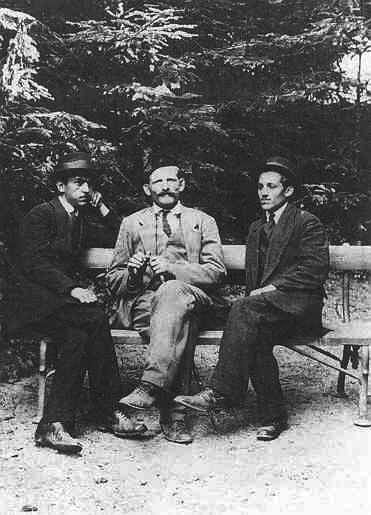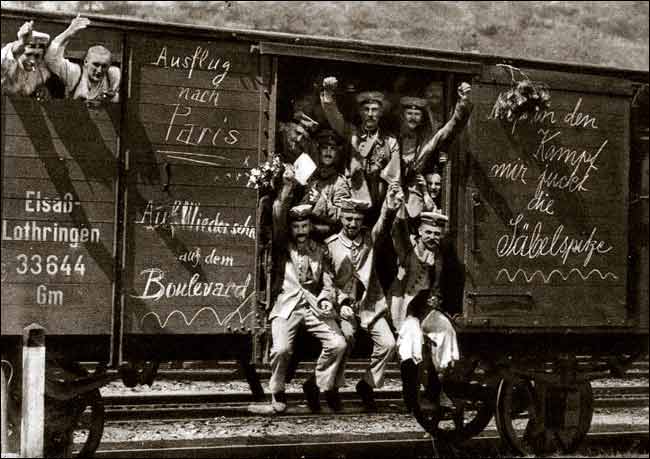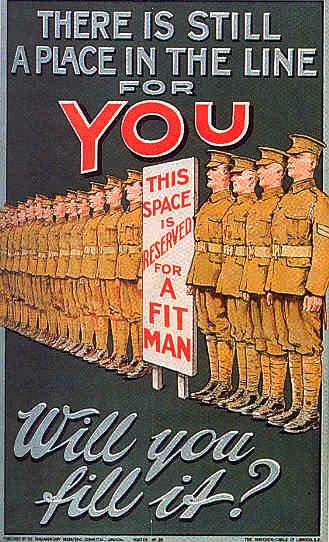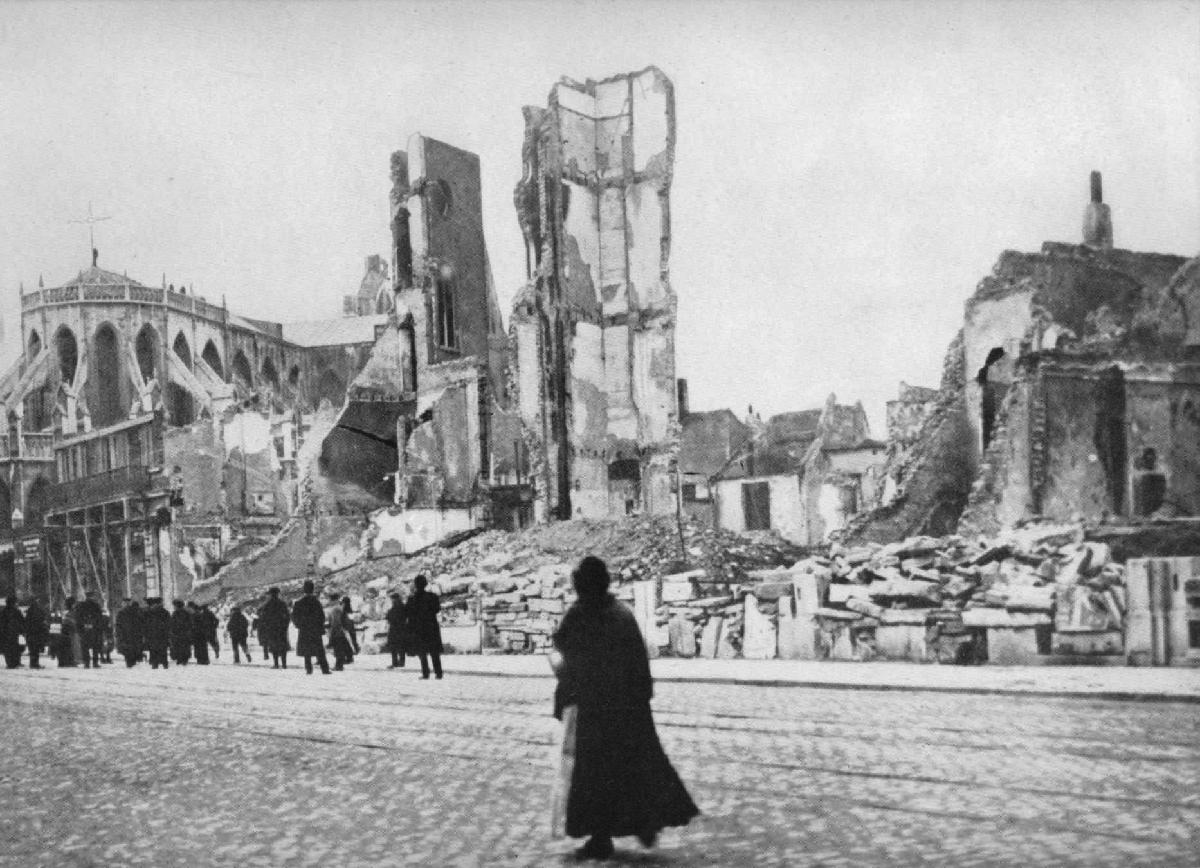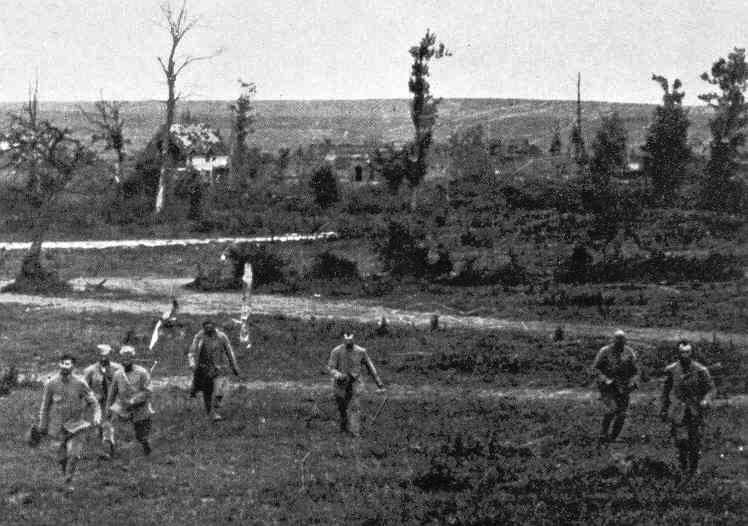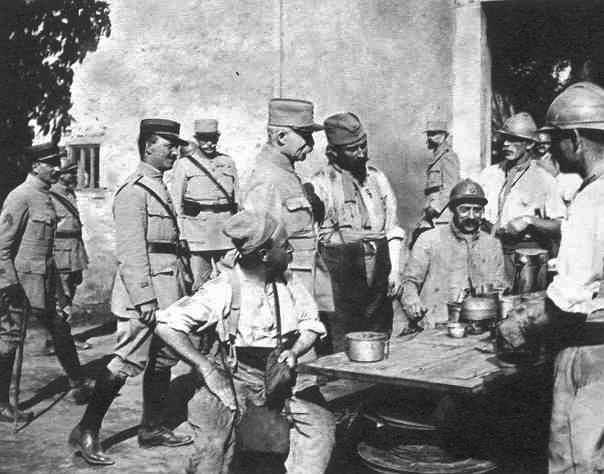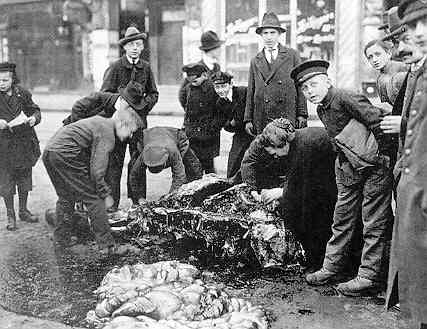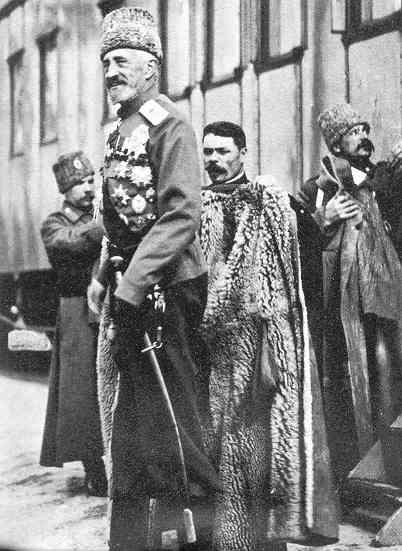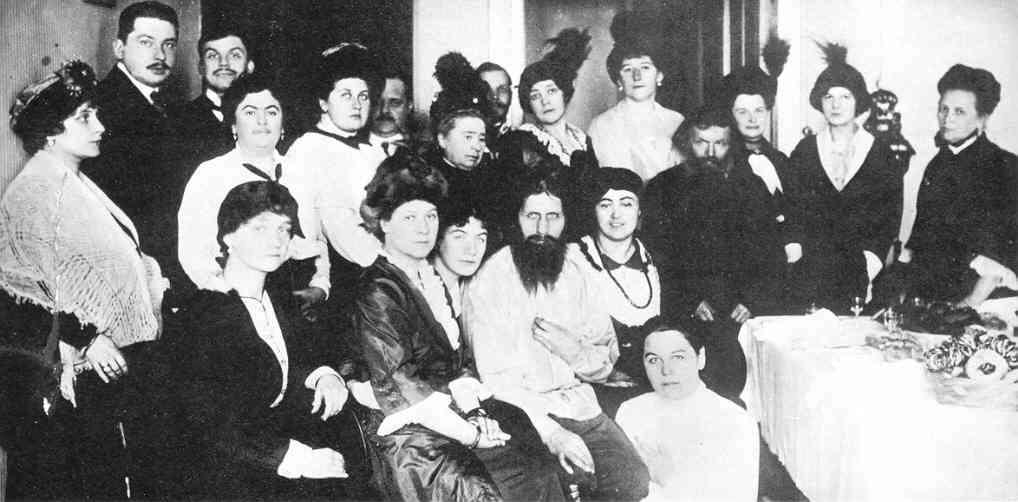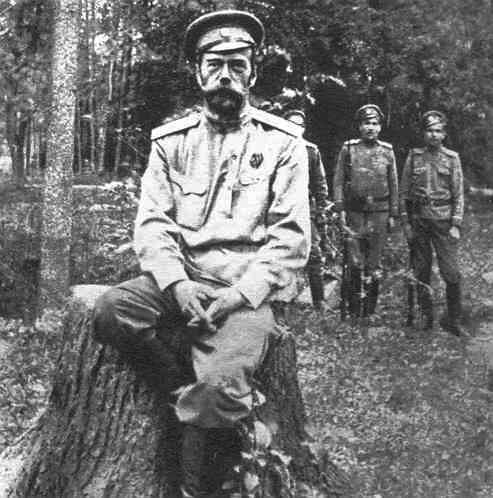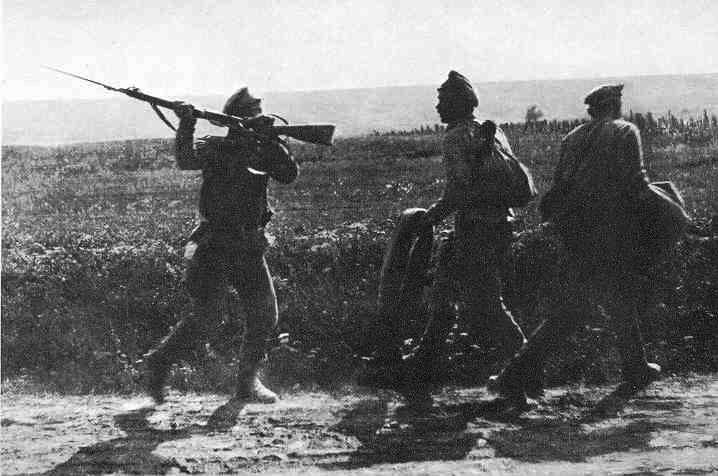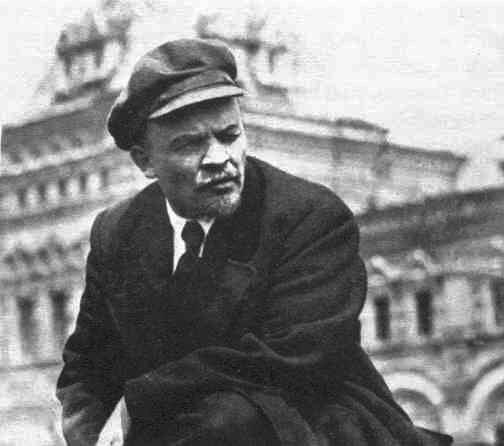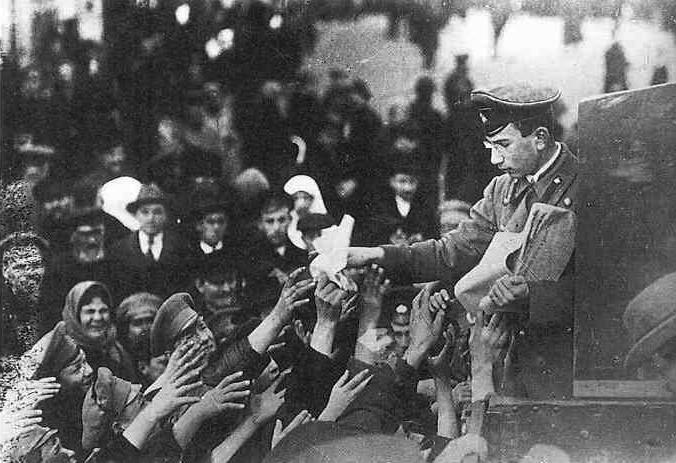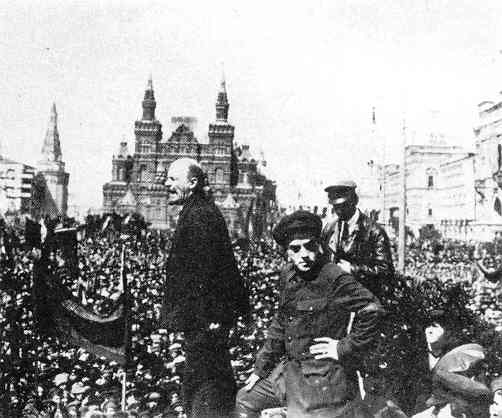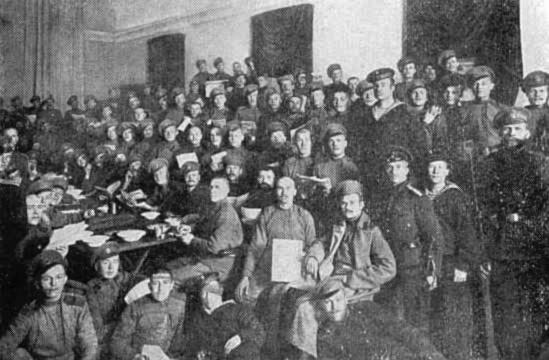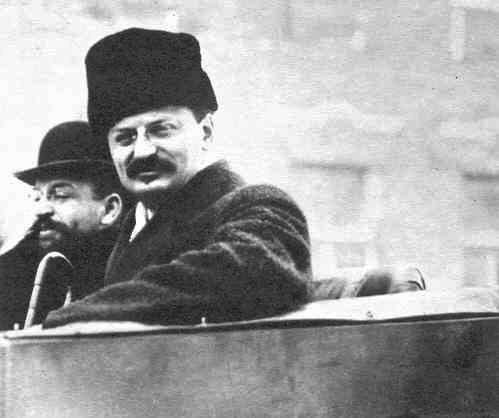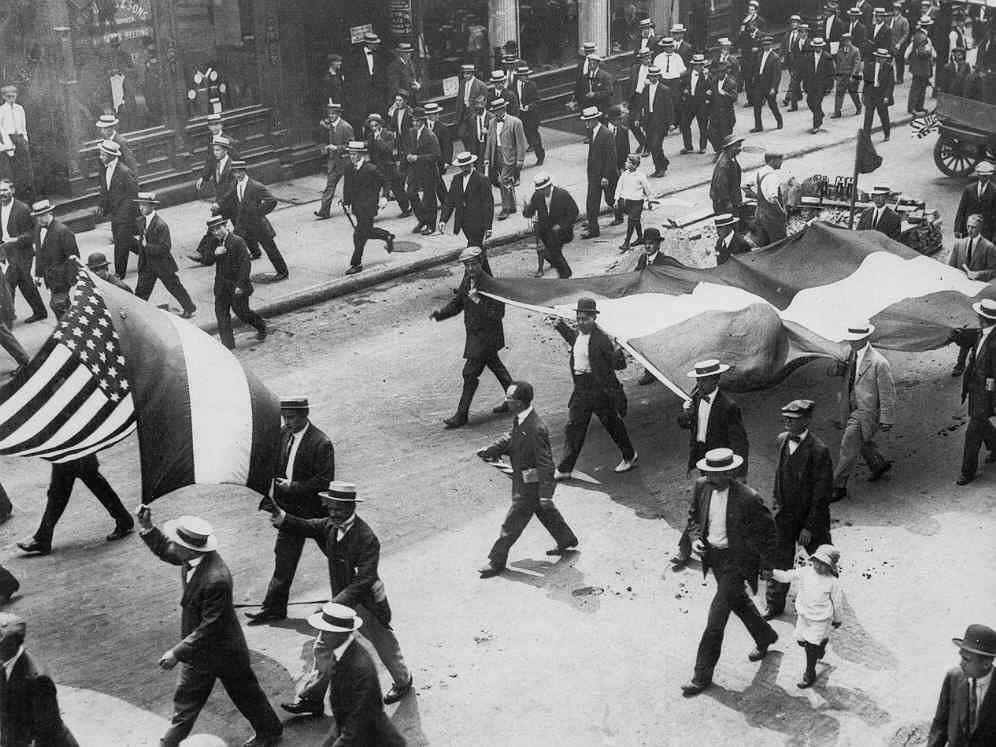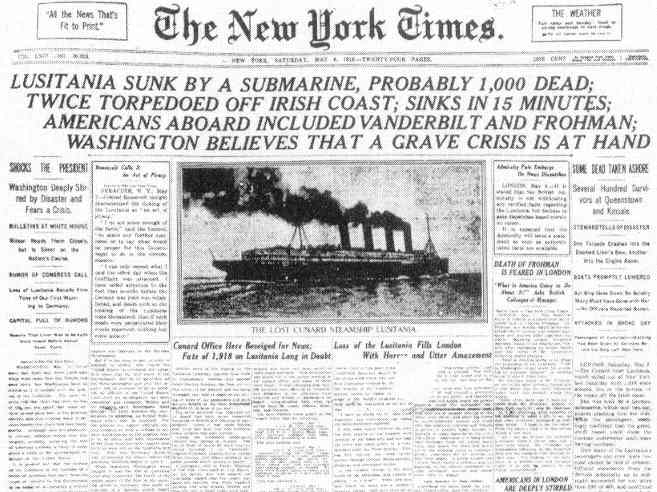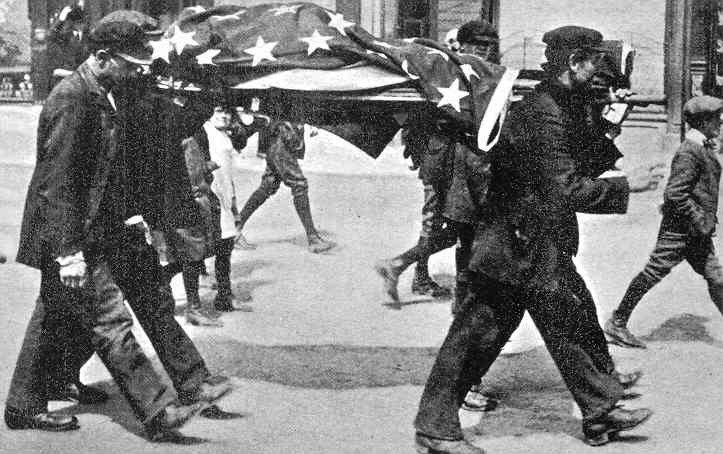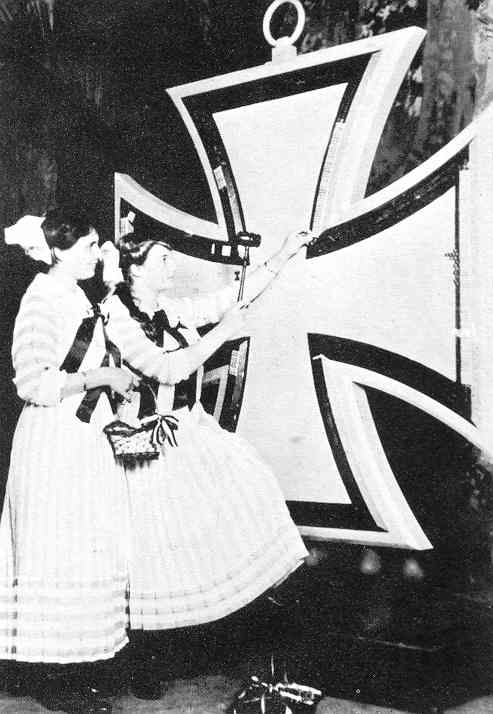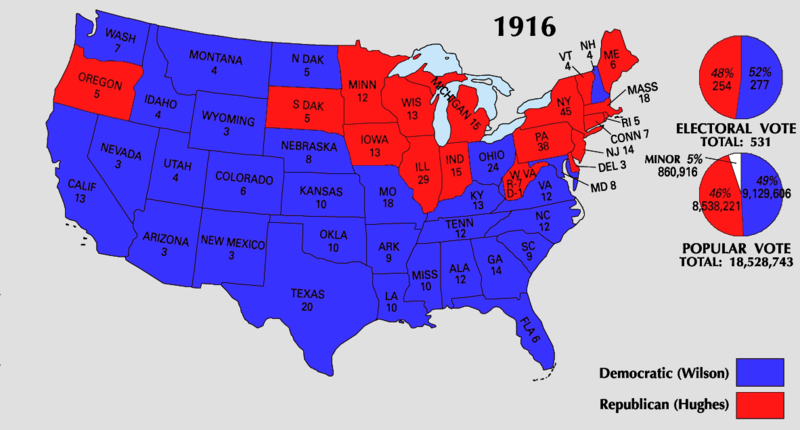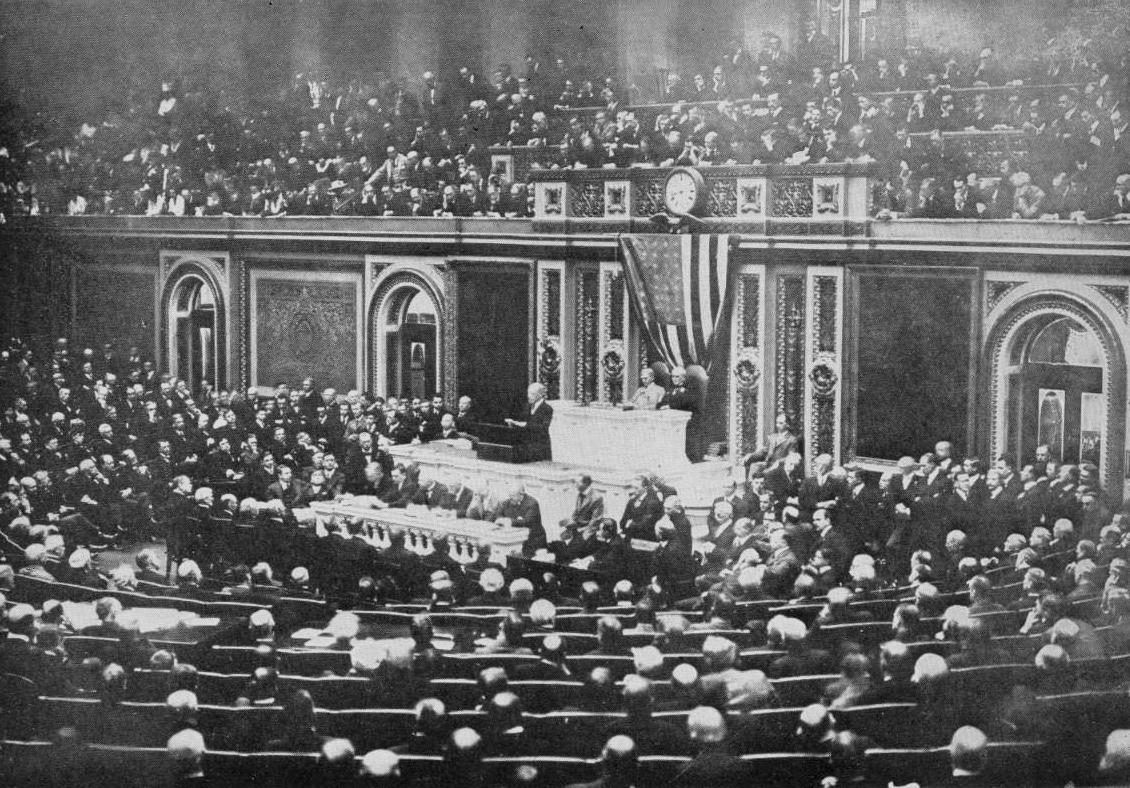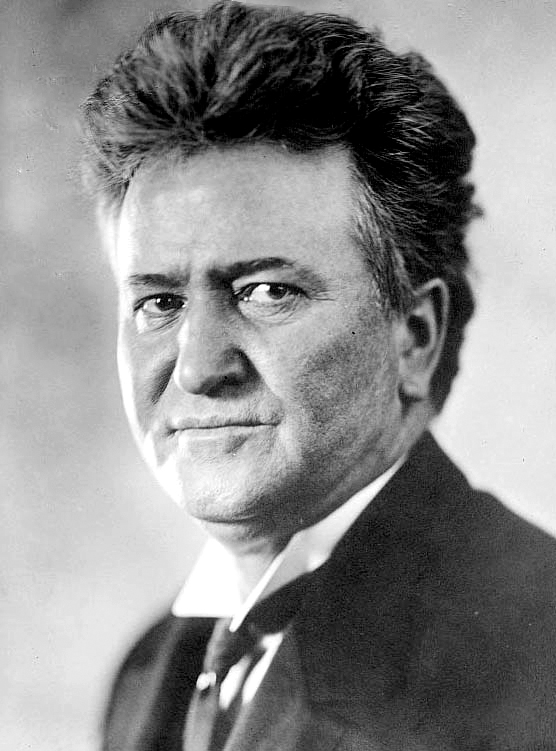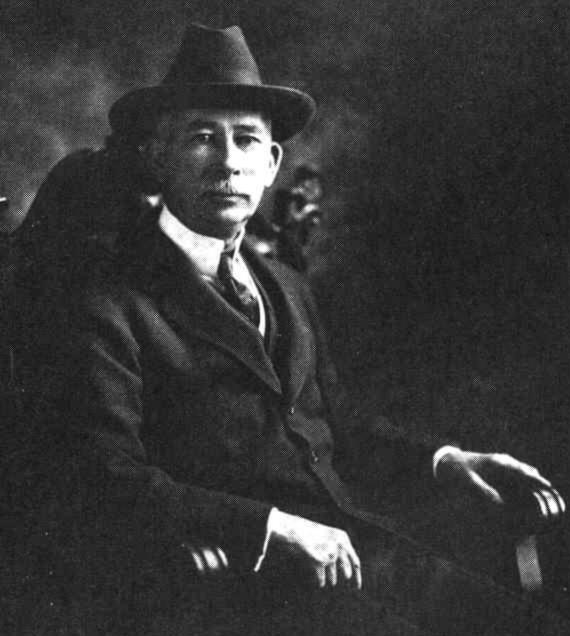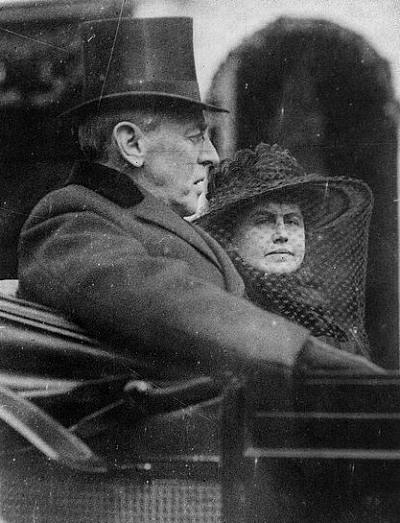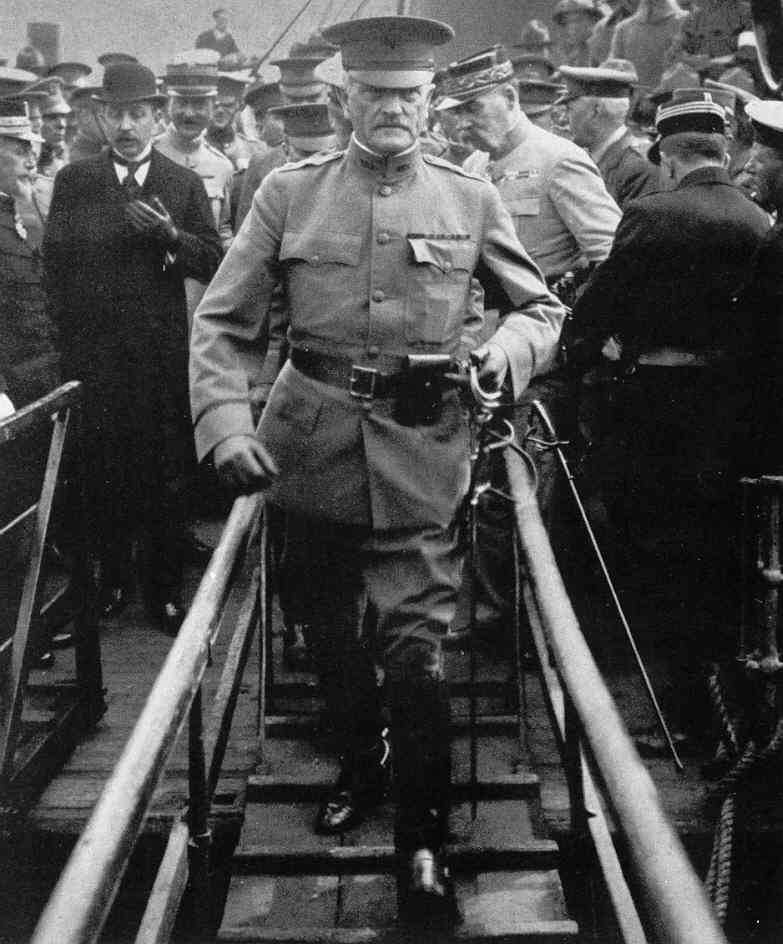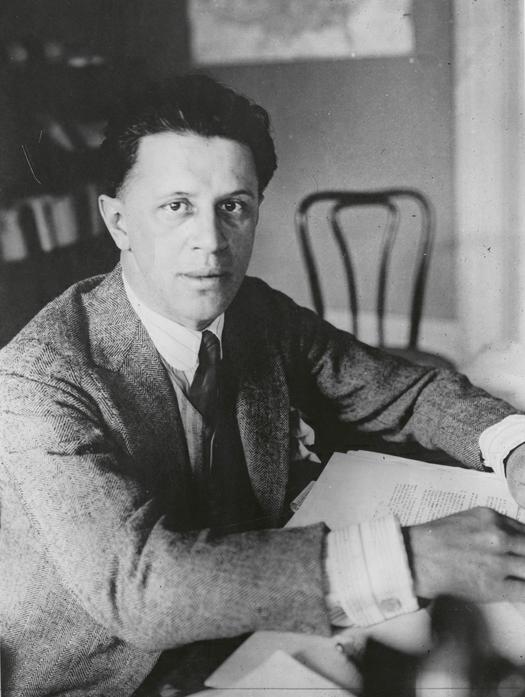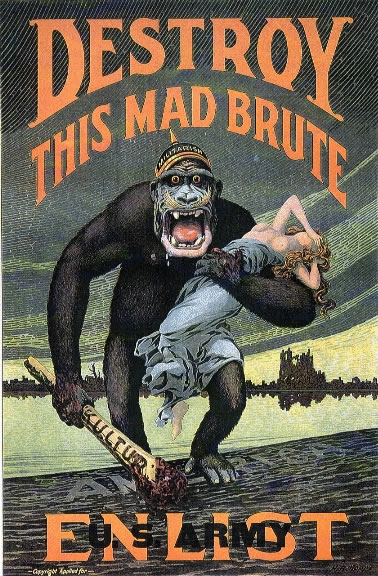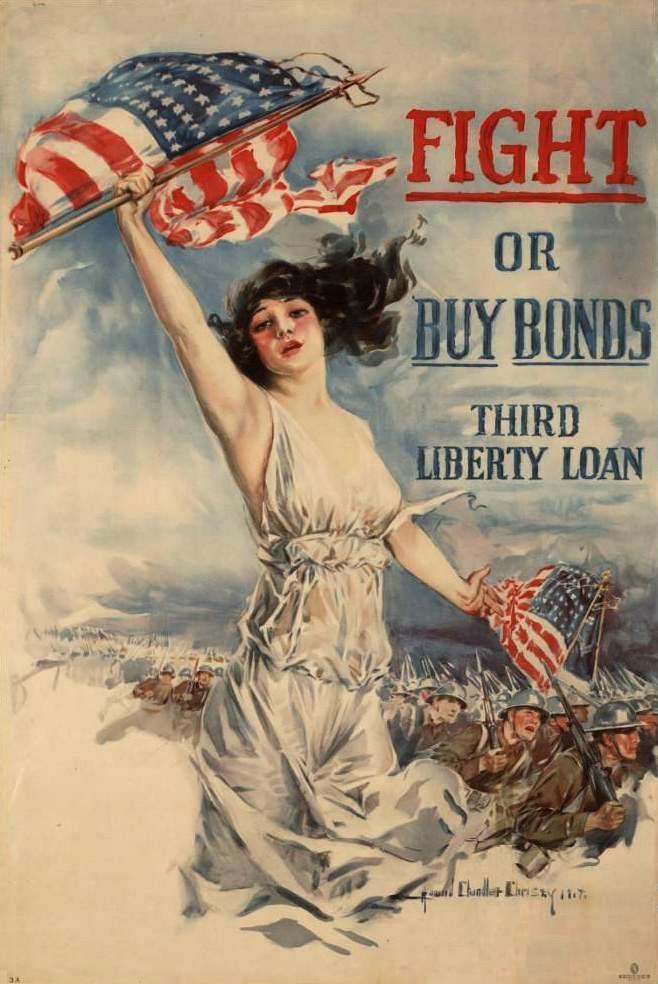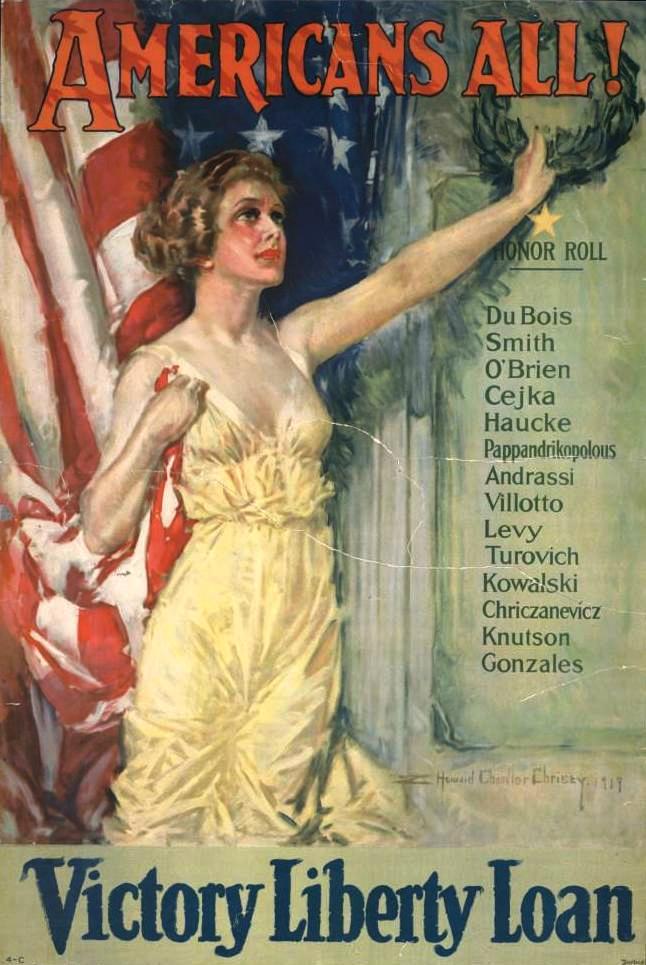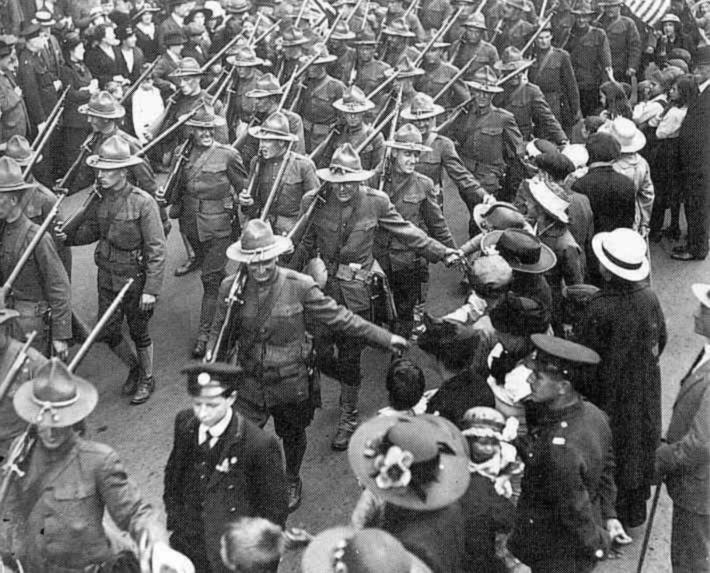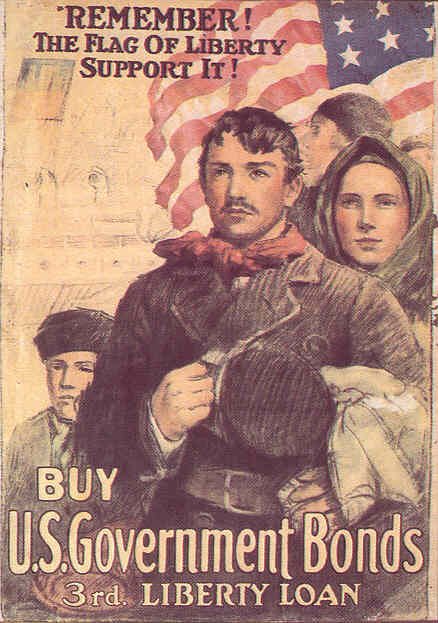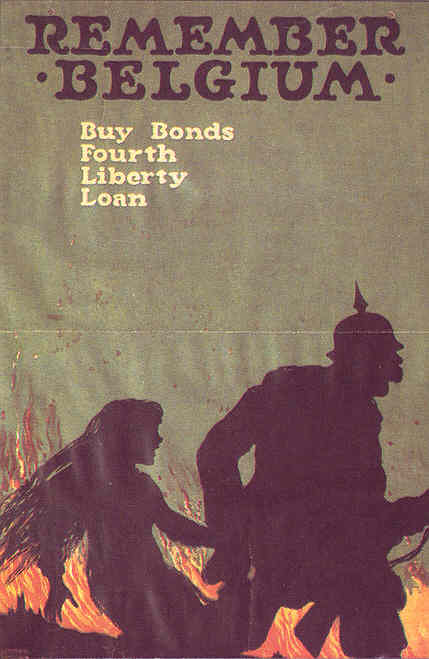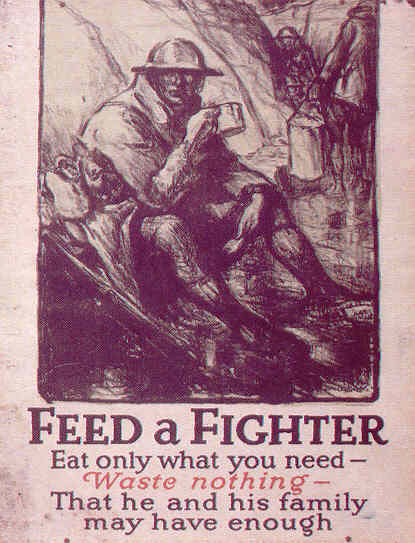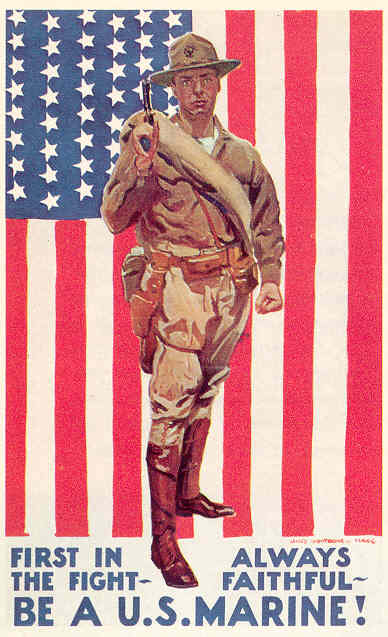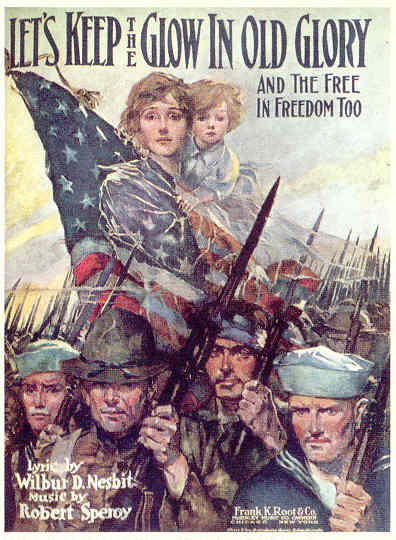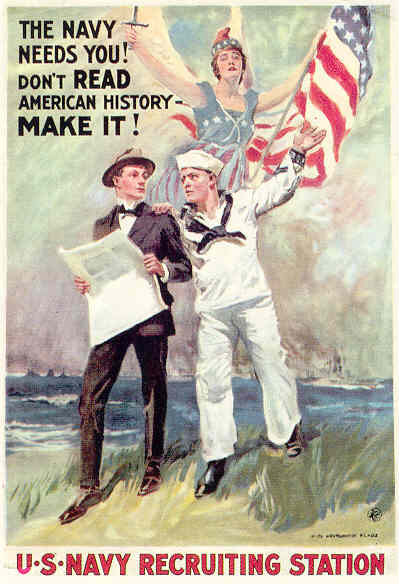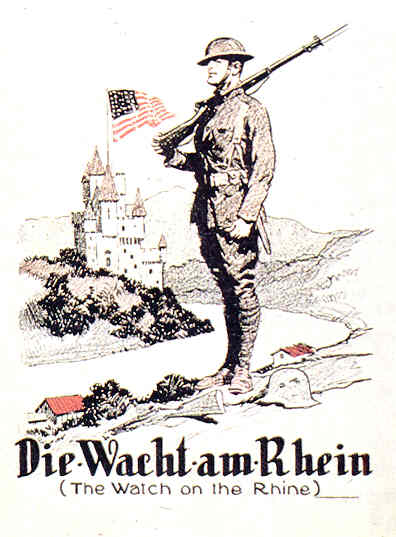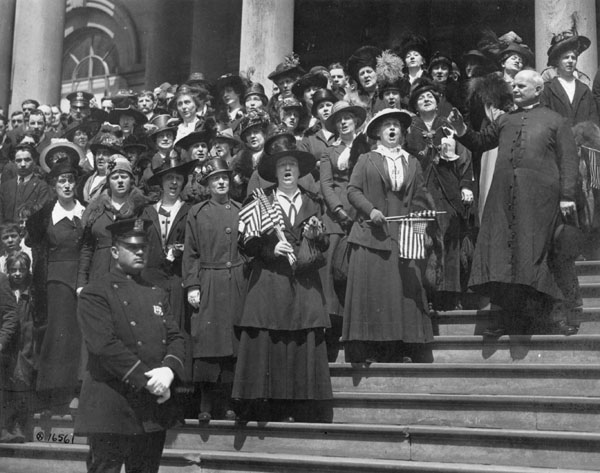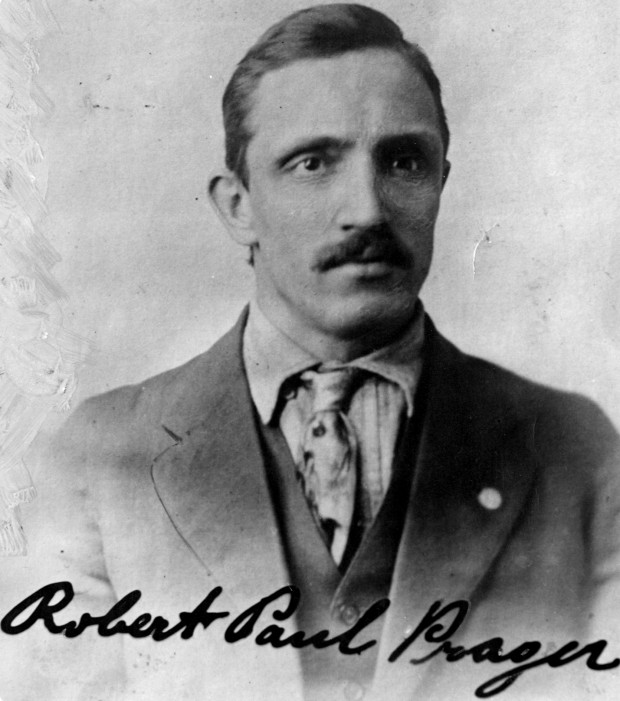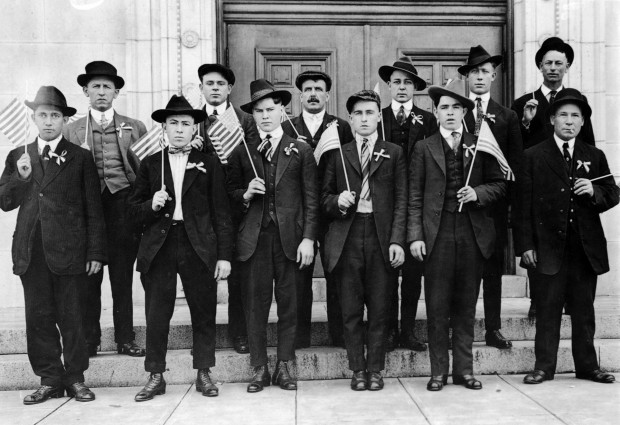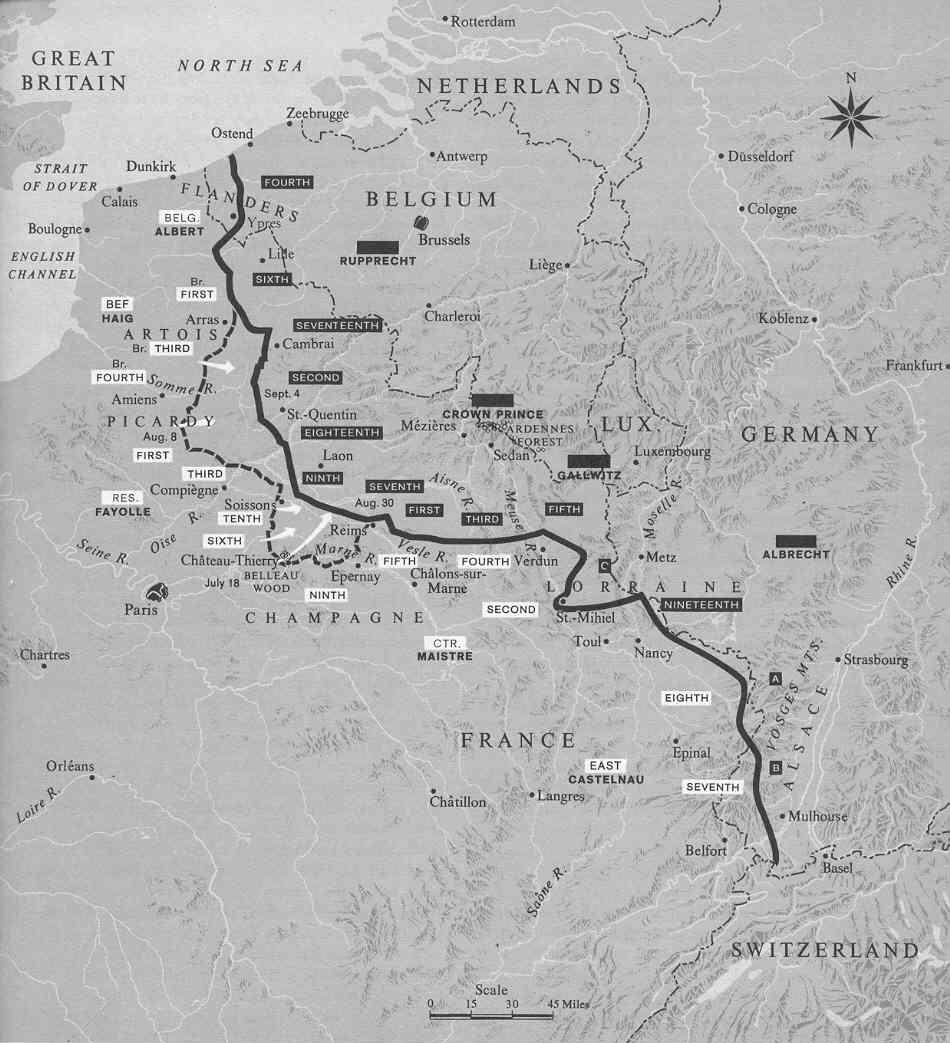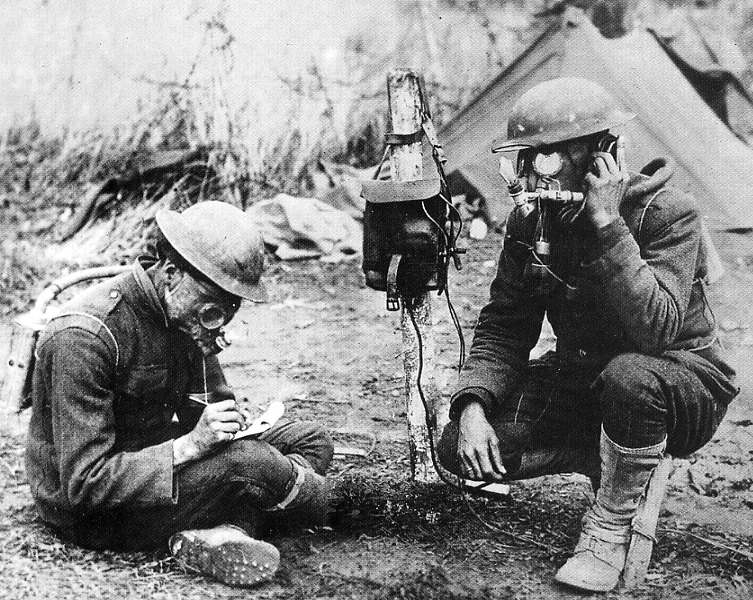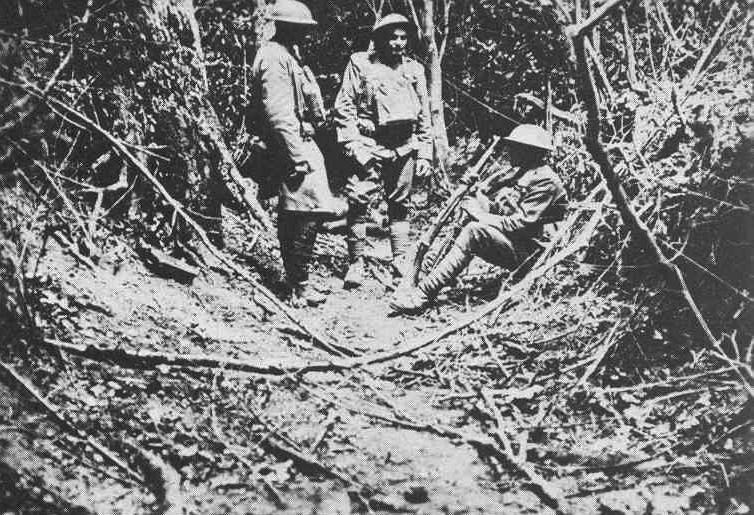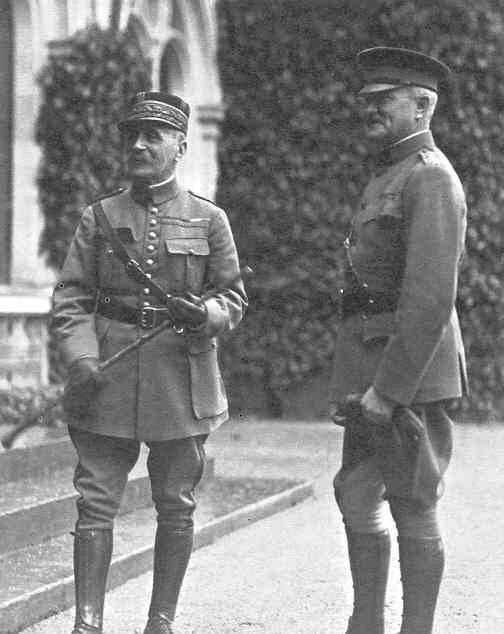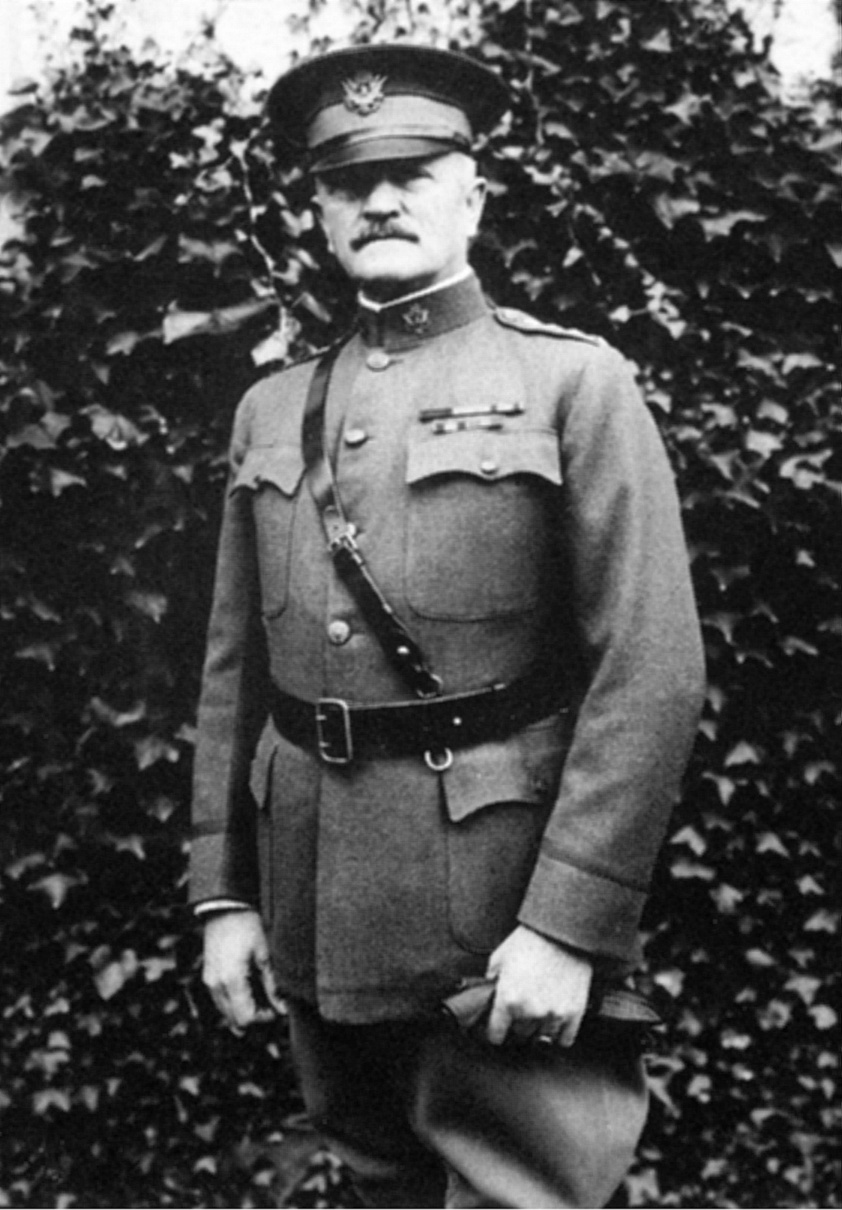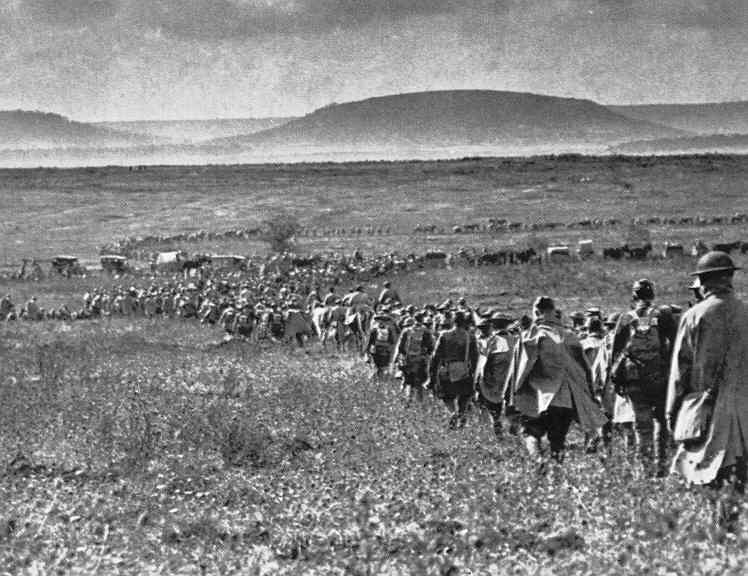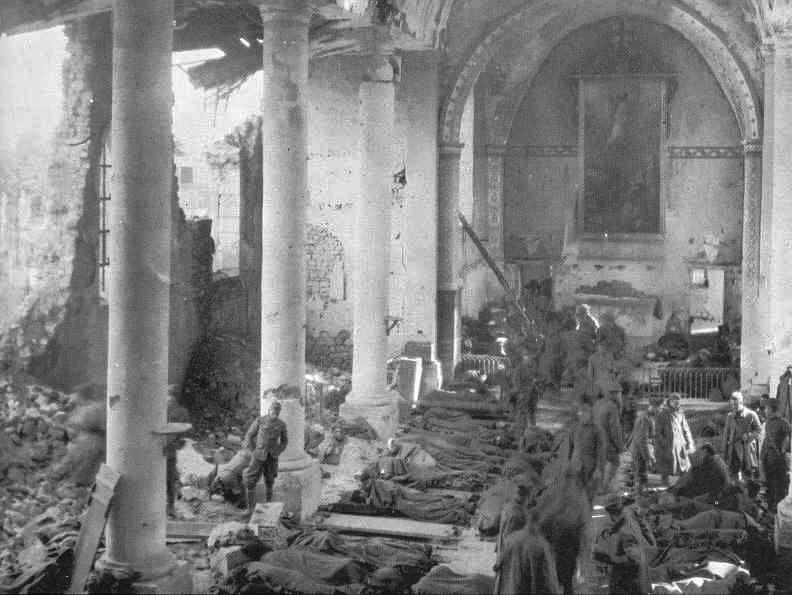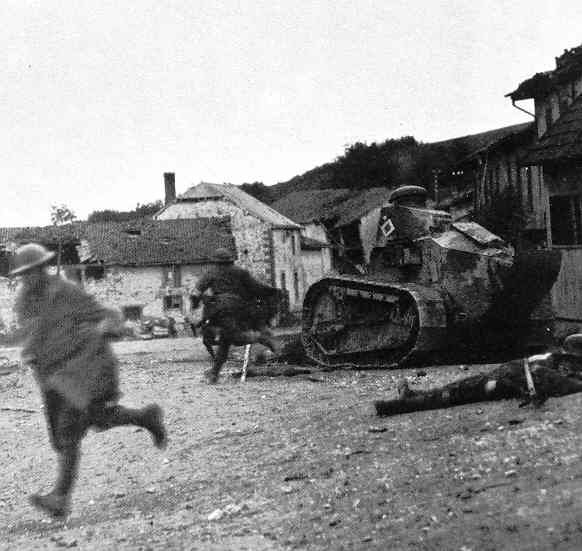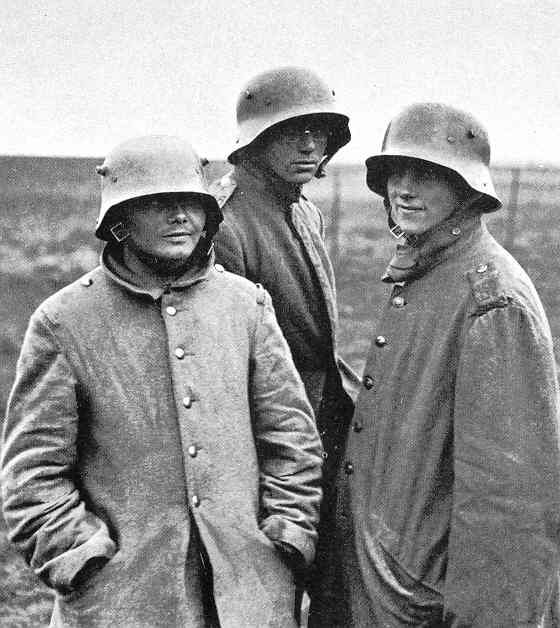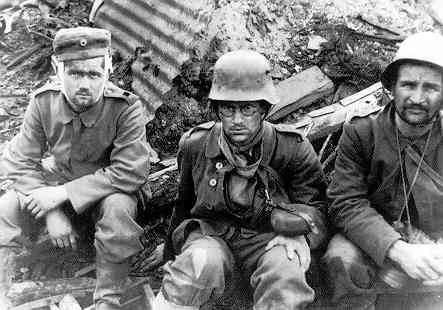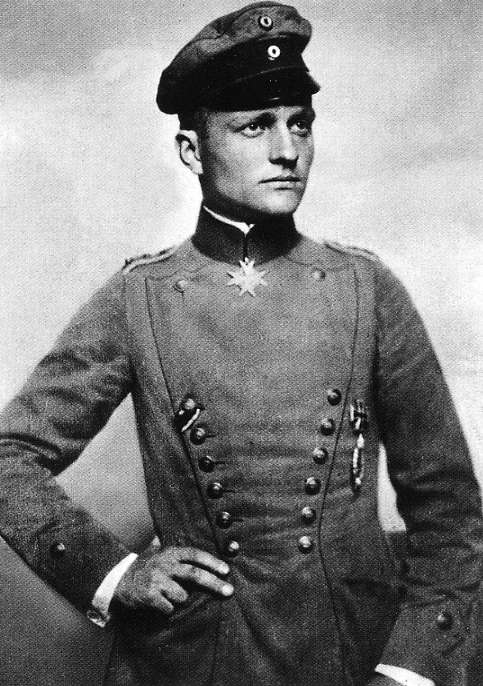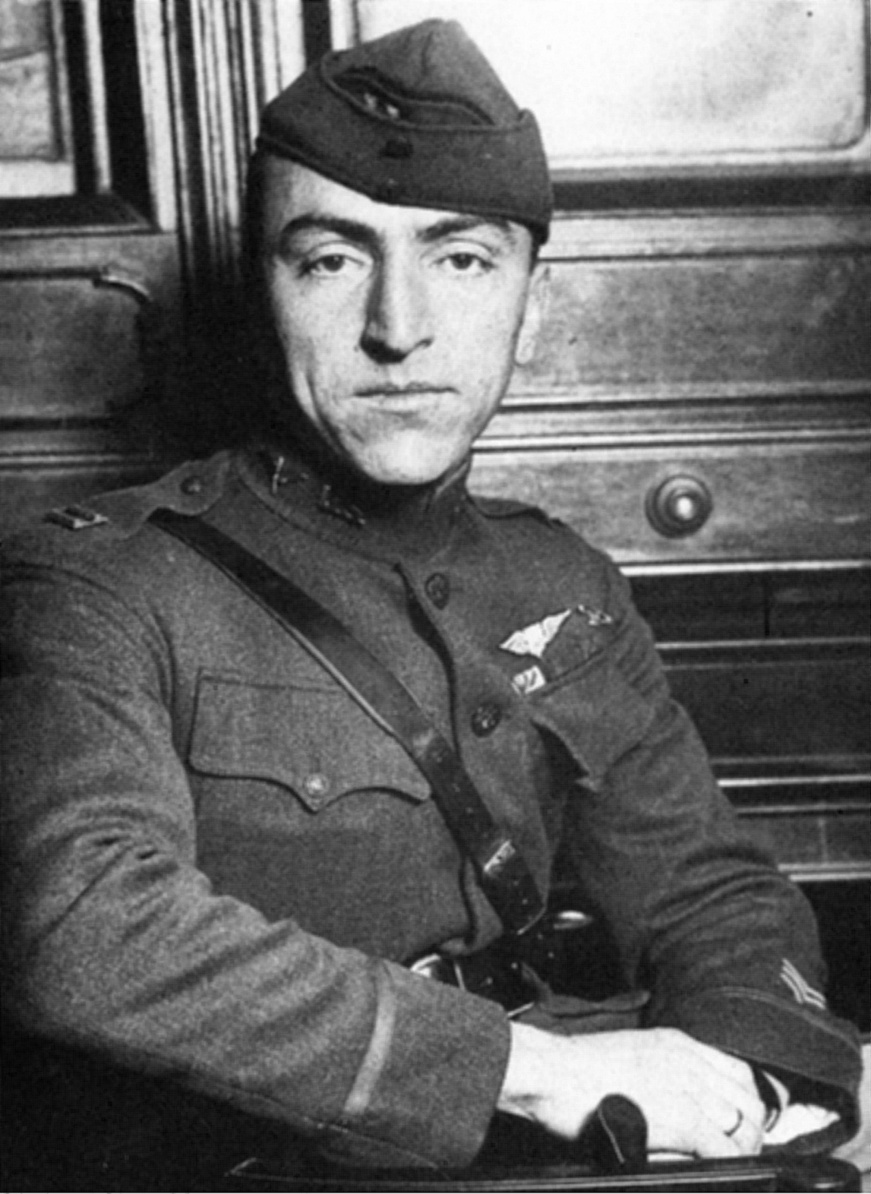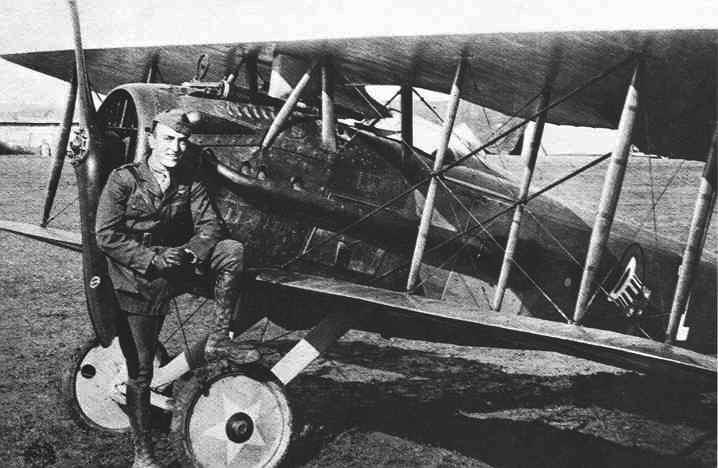14. NATIONALISM, IMPERIALISM AND THE "GREAT WAR"

THE "GREAT WAR" (WORLD WAR ONE)
 War clouds begin to gather in Europe
War clouds begin to gather in Europe
 1914: A bloody stalemate quickly sets in
1914: A bloody stalemate quickly sets in
 1915 - 1917: The extremely ugly war
1915 - 1917: The extremely ugly war
seems to have no end in sight
 Meanwhile ... Wilson (at first) keeps
Meanwhile ... Wilson (at first) keeps
America neutral
 Americans finally enter the War (1917)
Americans finally enter the War (1917)
 Wilson announces his "Fourteen Points"
Wilson announces his "Fourteen Points"
for world peace
 The German begin to fall back – summer
The German begin to fall back – summer
of 1918
 The Germans are forced into deep retreat
The Germans are forced into deep retreat
– September–November 1918
The textual material on this webpage is drawn directly from my work
America – The Covenant Nation © 2021, Volume One, pages 452-470.
A Timeline of Major Events during this period
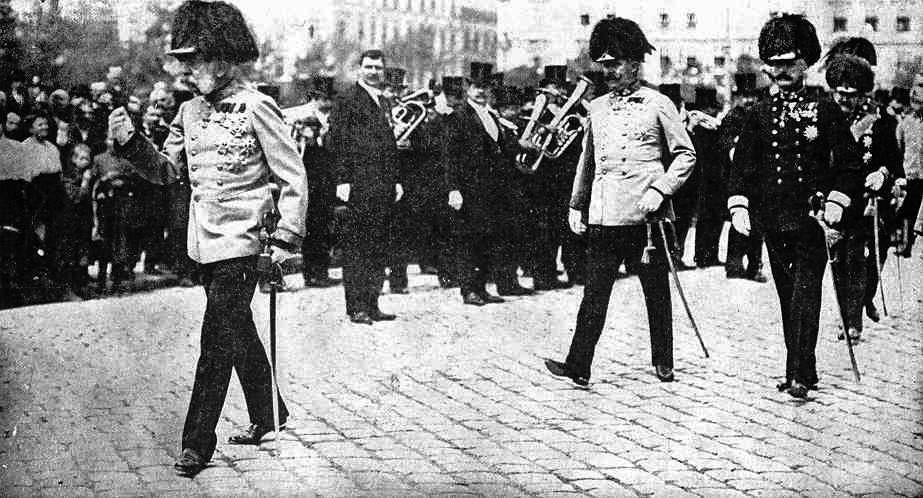
Gavrilo
Princip seized after
the assassination of the Archduke, June 28, 1914
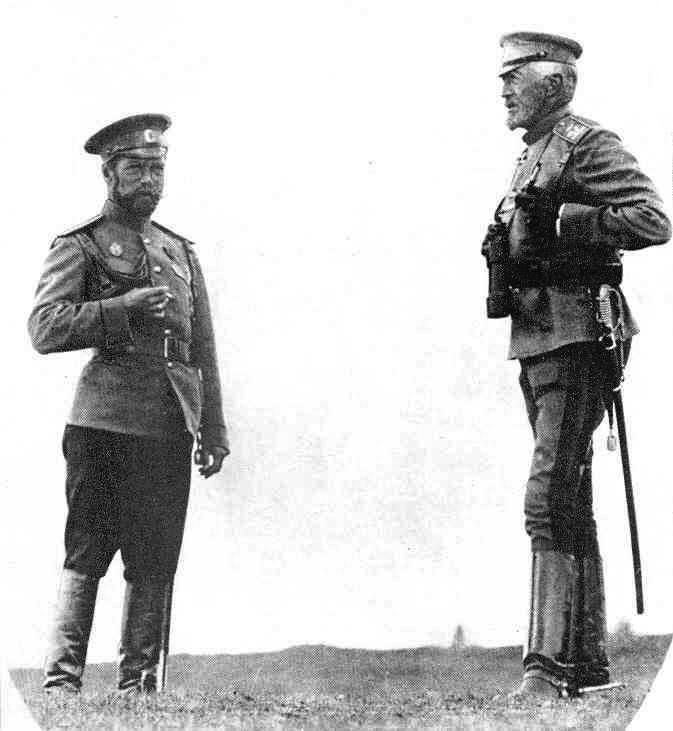 
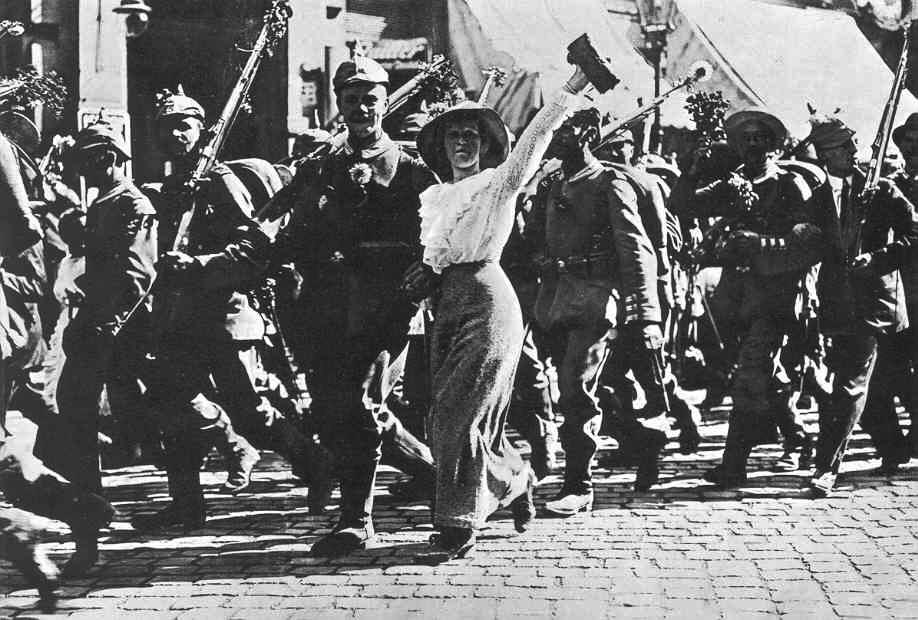
|
1914: A BLOODY STALEMATE QUICKLY SETS IN ... AND THE SLAUGHTER IS
TERRIBLE TO BEHOLD |
|
In the first month (August) of this long-developing war, things took pretty much the shape in Belgium and France that it would maintain for the next four years. The Germans had expected to swing through a relatively defenseless Belgium and descend directly on Paris before the French could get organized. Without Paris, France was defenseless. Thus the march through Belgium – which Germany expected would bring a hostile British response. But the action was supposed to be so swift that, by the time the British got moving in defense of Belgium, and France also got itself mobilized, Paris would be in the hands of Germany and the war effectively would be over. But Germany was not expecting such stiff resistance from the Belgians, which slowed the surprise move down greatly. The Germans were furious at the audacity of the Belgians and poured their wrath out onto the population of this small country, civilians included. So savage was the behavior of the Germans that the label "Huns" came to mind to those watching the German action. This would later come to haunt greatly the German national image. Also, Britain was indeed able to get some of its small army (the British Expeditionary Force or BEF as it would be termed during the war) in place in Belgium, at least sufficient in number to help slow down the momentum. And France frantically mobilized whatever resources it could, and though being forced to fall back in the face of the much better prepared German army, was able to slow down and then grind to a halt the German offensive, just north of the Paris suburbs. This halting of the German offensive was much the same along a line that curved eastward and then north through northern France, from the Rhine River in the East to the Belgian border (and into Western Belgium) along the North Sea in the West. Here a well dug-in battle line would hold rather permanently, barely moving but a few miles back and forth from its original position laid out in the first month of the war, despite four years of ferocious assault and counter assault. Millions of men would be sacrificed in the process, all without any seeming effect in breaking the murderous stalemate that settled in along this long line of battle.
|
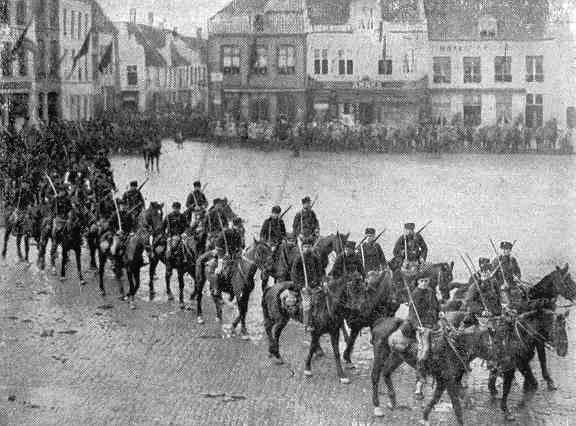
Belgian Cavalry to the front
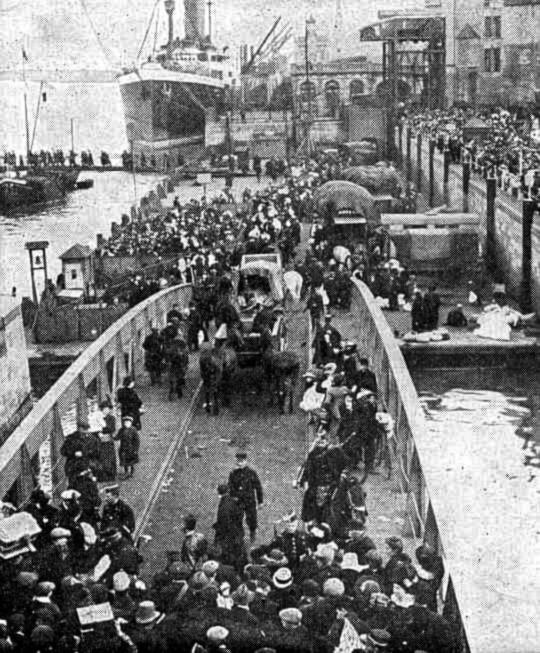
French troops pass Versailles Palace on their way to the War – August 1914

More
Frenchmen to the front – October 1914
200,000
French
soldiers died
in the first month of the war alone.
By October, 2 months later,
the glamor of war is gone.
The peasants don't even
look up from their work as the soldiers go by.
during the battle of the Falkland Islands – December 8, 1914
|
The Eastern Front
Another long but more changeable line of battle ran through Eastern Europe from the Baltic Sea in the North to the Balkan Mountains of Serbia in the South. Russia and Germany were engaged against each other in the north, Russia and Austria in the middle portions of the line and Serbia and Austria in the south. Russia had a huge (but ill-equipped and poorly trained) army to throw at Germany – and chose to initiate the action. However, Russia’s attack failed, despite Germany’s initial focus on the war in the West with France. Worse, Russia immediately found itself in trouble when one of its large field armies was skillfully surrounded and forced to surrender to the Germans. Russia still had more men to bring into the war. But this initial defeat would be merely the beginning of many troubles the Russians would experience in continuing a war they now had no idea of how to pull out of without a huge loss of national pride. In the central part of the line of engagement, the Russians were facing an Austrian army of equally inferior quality, largely because of the latter's multinational character. Here the war bogged down along a line that reached from the Carpathian Mountains in the south to Silesia in the north, and efforts of both sides to move the line proved to be dismal failures. In the south, Russia’s Serbian allies were able, for the time being, to hold back the Austrians. But they had much smaller resources at their command and thus time was not on their side.
|
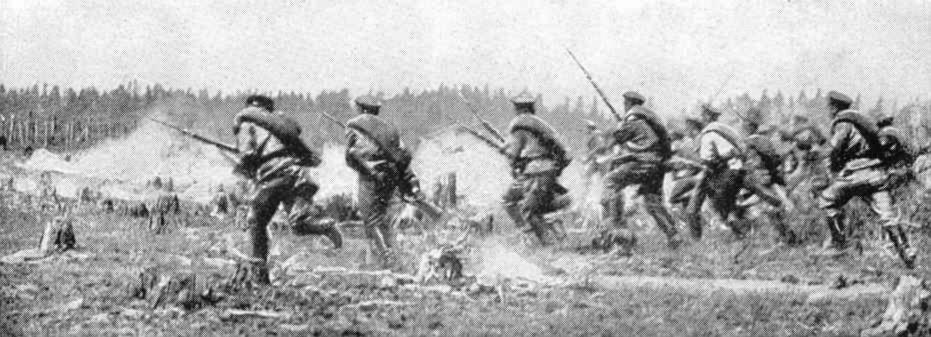
Ortelsburg, East Prussia – burned by the Russians in 1914Austrians burning and looting a Polish village -September 1915
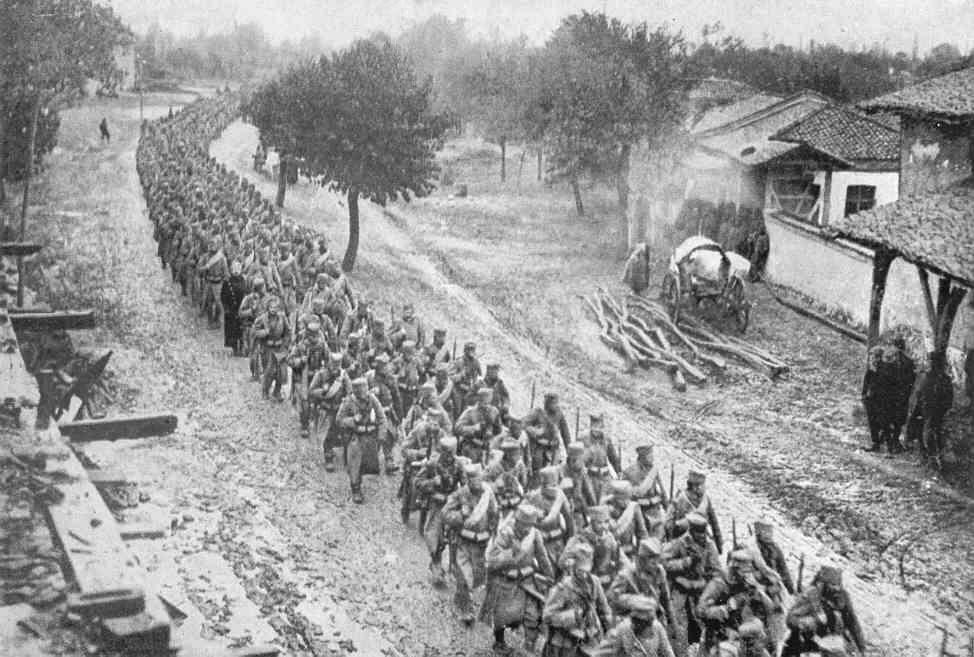
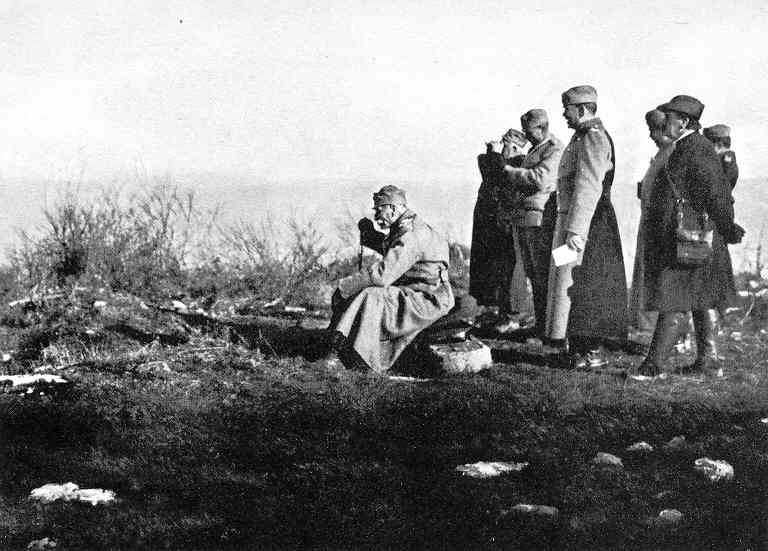
1915 - 1917: THE EXTREMELY UGLY WAR SEEMS TO HAVE NO END IN SIGHT |
|
As Christmas 1914 came and went, so with it went the idea that the war would be "over by Christmas." Along the entire Western Front soldiers had dug deep trenches and settled into a life of moving back and forth between the rear and forward trenches, going into action, and then falling back to recover (whatever was left of a unit anyway) in the rear. The routine never varied. At the front the soldiers awaited the pounding of the enemy lines by heavy artillery before being ordered up out of the trenches in order to cross thick lines of barbed wire and a no-man's land filled with shell holes and dead and decaying bodies – facing enemy rifle and machine gun fire as they went – until the remaining soldiers were ordered to retreat after having failed to dislodge the enemy from their trenches. On and on it went. The Germans got the brilliant idea of introducing poisonous gas with the hope of clearing the enemy trenches before their assaults. But while this proved deadly it did not prove as effective as they had hoped in clearing the enemy lines, and soon the British and French were attempting the same tactic, now also employing gas masks to protect themselves in the process. Between the gas attacks and the constant barrage by enemy artillery, life on the front was a person's worst nightmare, one that refused to go away. There was no escaping the slaughter. The casualty lists soon numbered in the millions on both sides. Other countries join in
It seems strange that with the horrifying experience of the Great War (as it was coming to be called) by this point a year old, any other countries would want to get involved. But political folly is not unknown in high political places. For Bulgaria there was in fact a good reason for joining the war: to get back the lands that it had lost to Serbia and Greece in the Balkan wars. In this they largely succeeded – until the war turned against their German allies in 1918. Italy, however, was another story. Italians were deeply divided about the war. In one of the many secret treaties being issued during the war, the British and French in April of 1915 promised the Italian government lands taken from Austria along the upper Adriatic Sea coast and along the southern slopes of the Alps, plus the possibility of picking up colonial territory from the Germans in Africa. And although many Italians were adamantly opposed to getting involved in the war for any reason, pro-war enthusiasts, led especially by the fiery D'Annunzio, finally got most of Italy worked up for war. Finally in May, Italy declared war, coming in on the side of the British and French against Italy's former allies Germany and Austria. Not all Italians would be happy about this. Italy was really not prepared mentally or physically for such a war. As it turned out, the Italians were unable to dislodge the Austrians from the mountainous Italian province of Trentino, despite repeated efforts. Finally they would find themselves in a humiliating retreat in the face of an advancing Austrian army in late 1917 after the fall of the Italian forward position at Caporetto. Romania1 also decided to enter the war (August 1916) after promises by Britain and France for territorial compensation were made to it similar to those made to Italy. When in September Romania invaded Hungarian Transylvania to collect on those promises they were only briefly successful in holding that territory before they were thrown back by a joint attack of Austria and Bulgaria. Before the year was out Romania had to yield not only its capital city Bucharest but most of its land to the invading Bulgarian and Austro-Hungarian forces. Romania was effectively knocked out of the war. Serbia is crushed
In the fall of 1915 Austria-Hungary and its allies Germany and Bulgaria joined forces to hit the Serbians hard. The Serbians were forced to retreat, leaving their capital Belgrade in enemy hands, even falling back into the Albanian mountains, and finally being chased down even there. Remnants of the Serbian army were finally, with British and French help, able to escape to Greece. In all, the Serbs lost over a million men (more than a quarter of its population and over half of its male population). The 1916 Brusilov Offensive
The year 1915 did not go well for Russia. The Germans pushed the Russians out of Warsaw as well as the Polish lands further to the east. But the Russians planned to open up an offensive in June of 1916 (the Brusilov Offensive) against the Austrians in the hope not only of relieving the German-Austrian pressure on the Russian Ukraine region but also in the hope of retaking some of the lost Polish territory. The offensive was designed also to relieve pressure on the French at Verdun, where the Germans had earlier that year opened a major offensive on the Western Front. The Brusilov offensive came to an end in September when both armies faced total exhaustion, and when Russian troops had to be withdrawn to try to help the retreating Romanians. The net result of this massive encounter between the two sides was the smashing of the Austro-Hungarian army, which subsequently would have to rely increasingly on German support to conduct its campaigns. But the offensive had also been very costly to the Russian army, in equipment as well as men. This would mark the high point of the Russian role in the war. The battles of Verdun and the Somme (1916)
In the late winter (February) of 1916 the Germans opened up a massive offensive against the French line at the fortress city of Verdun. They literally reduced to rubble the complex fortifications of Verdun, hoping to annihilate completely the French troops gathered there. It was expected that this would open such a huge hole in the French line that the French would be thrown in disarray and the Germans could then move on the French capital and end the war. Massive amounts of German power would be thrown into this operation. But the Germans had not counted on the stiff resistance that the French offered even amidst the rubble, and the French line held as more French divisions were brought into position by the determined French General Pétain. By July it was obvious to the Germans that their plan was not working. Verdun had been a gamble, which failed to yield any significant gains for the Germans despite the heavy costs involved (with somewhere between a third and a half a million casualties on both sides). By July much of the action now moved
north to the Somme River valley when on the first of the month the
British opened up a major summer offensive against the German line. The
goal was both to take pressure off the French at Verdun (which it did)
and do what the Germans had attempted to do at Verdun: open up a gap in
the enemy lines (which, as at Verdun, it did not do). Massed attacks on
German lines failed to dislodge the Germans and hundreds of thousands
of allied British and French troops died in the attempt. The attacks
continued through August, September (growing even heavier) and October,
until finally in November the rains turned the devastated land into
knee-deep mud and the offensive ground to a halt. An interesting new item of war was introduced at the Somme: the British tank. But the British had not yet learned to maximize its use with ground troops, and at this point it did little to impact trench warfare. 1"Rumania" was actually the way the name was spelled at this time, although "Romania" was not uncommon. Romania would finally become the official name of the country in 1975. And the slaughter of soldiers everywhere continues. But the worst of all is life in the Western trenches that get dug in as the lines of war stalemate into a permanent line of slaughter ... lines that will barely move 10 miles either way despite massive amounts of soldiers ordered to the deaths in order to move those lines
A
typical
French trench scene – 1916 British troops head "over the top" for a skirmish with their German counterparts
A British infantryman hit during a gas attack – Ypres, April 2, 1915 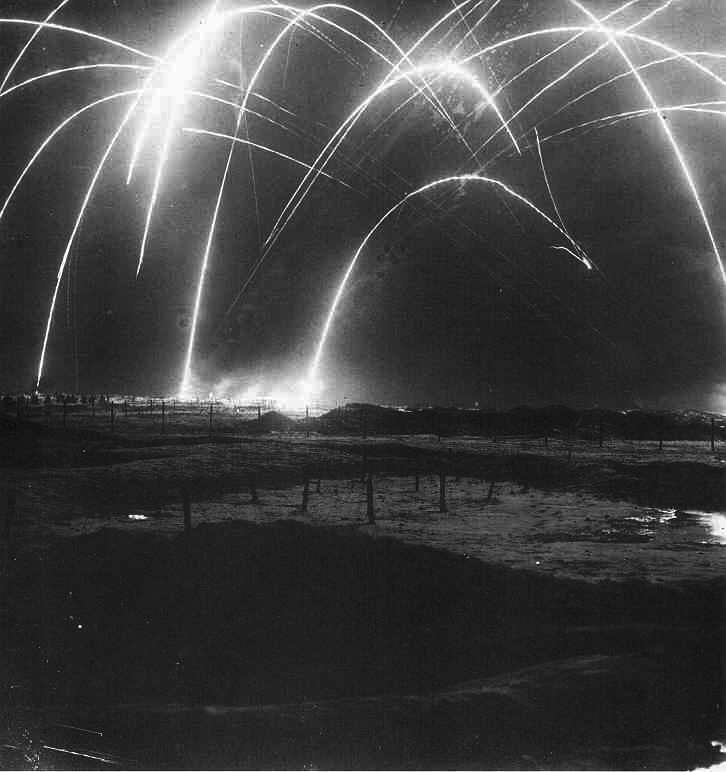
A British
training camp in Northern France – realistic preparation for the recruits for life in the
trenches Colonial troops are even brought to the front ... to see how "civilized" nations slaughter each other Indian troops arriving in England to join the action Fueling all this slaughter is a massive killing industry
The
destruction of the Verdun
Citadel after two days' bombardment
French being bombarded at Verdun Germans
dug into the ravaged
earth watching the shelling of French lines at Verdun
German
infantry attacking
at Verdun
The 1916 Battle of the Somme ordered by the British was just as murderous ... and just as pointless 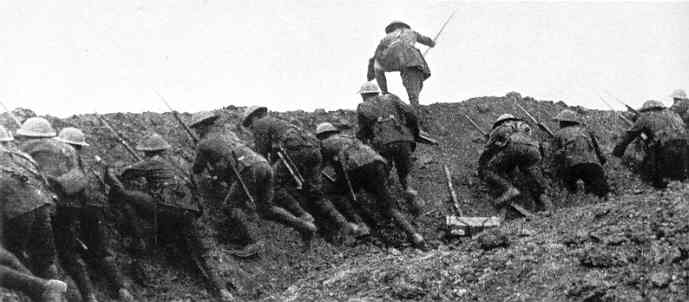
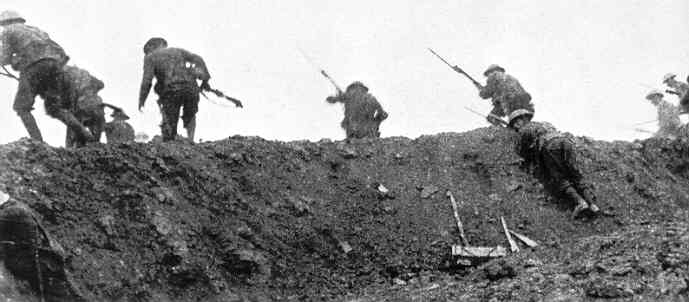
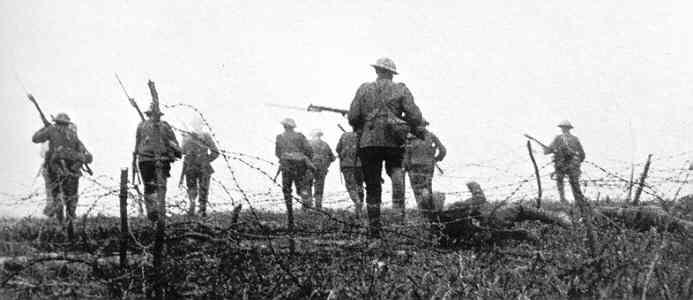
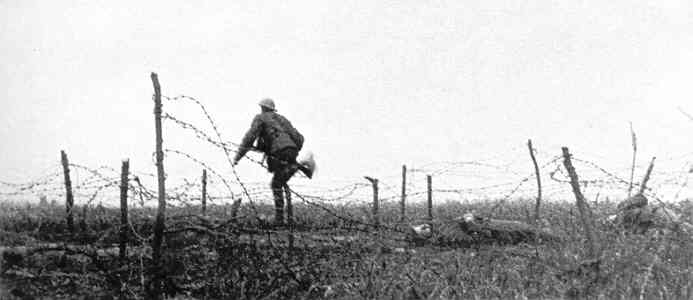 The British effort to take Passchendaele Ridge in the "Third Ypres" assault in 1917 fared no better
The mindless destruction of civilized life never let up
Although Russia's army greatly outnumbered its
enemies, it lacked the supplies necessary to make it an effective
fighting force. Weapons and ammunition were always in short supply,
demoralizing the Russian soldier who was expected to fight on
empty-handed. Russian civilians were well aware of these problems and
were quick to blame the Tsar and his government for these scandalous
shortcomings. Very unwisely, in September of 1915 the
Tsar decided that he personally must lead the military from the front
and left the governing of Russia to his wife. And the Tsarina in turn
left matters to the nasty-smelling and crude mystic monk Rasputin, who
made and unmade governments with his own personal appointments, further
scandalizing the Russians in their dwindling respect for their imperial
government. By the beginning of 1917 wartime
shortages had hit the civilian population as cruelly as it had the
military. Food in the cities was very difficult to obtain, and
grumbling turned into a full-scale protest by Petrograd (St.
Petersburg) workers (the Russian "February Revolution"),2
joined by masses of women. The protest built strength over the next
days, and soldiers sent to restore order began to join the protesters. Word reached the Tsar at the front that
even his own bodyguard had joined the revolt, and under advisement of
his generals, Nicholas simply abdicated his throne (March 15). When his
brother Grand Duke Michael refused to take the throne, no other
Romanovs stepped forward to take the reins of government, thus bringing
300 years of Romanov imperial government to an end in Russia. All this activity now gave the outward
appearance that Russia had just become a democracy. Actually what it
had become was hardly decided at that point. However, from a certain
vantage point, it could be claimed that now the war had taken on the
character of being a great moral matter of democracy (Britain, France,
Italy – and now Russia) against autocracy (the empires of Germany,
Austria-Hungary, and Turkey). Seeing Russian developments in this light was, very importantly, Woodrow Wilson, the president of the United States. Eventually heading up the new Provisional
Government was Alexander Kerensky, leader of the Social Revolutionary
party, but also vice-Chairman of the powerful Petrograd Council or
Soviet. However, understanding the dynamic of this war no more than had
the Tsar, Kerensky made the fateful decision to keep Russia in the war,
to pursue Russia's new "democratic" cause (and redeem Russia's
tarnished honor). But Kerensky proved no more able to keep
Russia together in the face of the demands of war than the Tsar, and
the Russian soldiers now begin to protest against the new government. This gave the Bolshevik leader Lenin the opportunity to seize power (the Russian "October Revolution")3 in both Petrograd4
and Moscow, on the promise of taking Russia out of the War. This clever
move made him instantly more popular among the Russian commoners than
their new democratic champion, Kerensky. Lenin soon made good on his
promise, and – with a Russian-German armistice in December – took
Russia out of the war. Russia was at this point finally out of
the war, but tragically only to face now a new one – an internal civil
war among various Russian groups, one that would prove to be even more
devastating to Russia than had been the Great War that they had just
dropped out of. 2Occurring in early March on our Western calendar. 3Occurring in early November on Western calendars. 4St.
Petersburg was renamed "Petrograd" during the War to give it a more
Russian sound. Soon it would be renamed yet again as "Leningrad,"
in honor of the leader of the Communist Revolution in Russia. And
then with the fall of the Communist system in Russia at the beginning
of the 1990s, it would retake its original name, St. Petersburg.
Russians,
hearing reports
that German cavalry have broken through Russian lines, have thrown down their guns
and are in full flight – summer 1917
> > > >
Wilson was American president when World War One
broke out in 1914. He correctly understood that this war was merely an
ego battle among European empires and that the United States had
absolutely no reason to get involved. In 1916 he ran for reelection as
president in part on the position that "he kept us out of war." It had never been easy trying to stay
neutral in a war that affected America's vital business in trade with
Europe, as European enemies attempted to isolate each other from
resupply by America on the high seas. The British effectively put in
place a naval blockade against Germany which prevented the Germans from
receiving much-needed shipments of even food coming from America, both
from the United States and from South American countries such as
Argentina, which were also major exporters of food products. Americans
complained bitterly about the way the British prevented neutral America
from conducting trade with Germany in non-war goods. But the British
ignored these complaints. Eventually the Americans responded by simply
devoting their trade as a "neutral" nation to Britain and its ally
France, which rewarded American businesses richly by purchasing
everything America could send them. Germany was thus left out in the
cold as its people drew closer to starvation. The Germans countered by attempting to
establish a blockade of their own around Great Britain, using
submarines as the effective instrument. But submarines were viewed as
inhuman instruments of war because they could not rescue the sailors of
ships they had sunk. Thus the British blockade took on a legitimacy
that the German blockade failed to receive in the eyes of Americans
(although actually the German sinking of American shipping was quite
light). This played into the hands of the English
propaganda machine operating very effectively in America with the
American press (the Germans never really learned how to shape the
narrative of events in Europe that could draw the sympathy of
Americans). In May of 1915 a German U-boat sank the massive English luxury liner Lusitania
just off the coast of Ireland, with nearly 1200 people drowned, over a
hundred of whom were Americans, including some very prominent citizens.
The Germans had warned ahead of the dangers of bringing a luxury liner
into the war zone, especially with huge amounts of contraband war
materials in the ship's hold. Indeed, what the Lusitania had been doing
was very illegal under the international rules of war as they stood in
those days. Nonetheless American fury was immense, and the Germans backed down by promising that no more civilian liners would be targeted. For the moment the crisis passed and
America maintained its neutrality, as lopsided as it was in the way it
favored only Britain and France. But the Germans could do little about
it, unless they wanted to make an enemy of America.
But pushed to total frustration by a starving
Germany, the Kaiser in early 1917 made the fateful decision to resume
U-boat attacks on shipping, hoping to force the Americans to take a
truly neutral side in the war. This resumption of U-boat attacks on
American shipping heading to Great Britain and France instead served
only to outrage the Americans, an outrage so great that it easily
pushed America towards a readiness to go to war with Germany over this
matter. Then there was the incident of an
incredibly stupid telegram sent around this same time by the Germans to
the Mexicans – and intercepted by the British (and purposely placed in
American hands) – inviting the Mexicans to go to war against America
under the promise that the Germans would help them recover territory
previously lost to the U.S. if they joined the Germans in this
struggle. The Mexicans of course were not that foolish, and the
telegram was ignored. But its exposure had helped immensely to stir up
the demand of angry Americans for war against Germany. But were these sufficient reasons in
themselves to now take America into the War? Was the situation for
America any different than it was in 1915 when Wilson was able to use
diplomacy to keep heads cool and America out of the war? But it was actually events in Russia that
would tip the balance for Wilson towards the decision to finally take
America into the European war. Subsequent to the February Revolution –
which occurred just as Wilson was being installed for his second term
in office – Wilson no longer viewed the European conflict as a mere
brawl among European powers. The collapse of the Tsar's imperial
government in Russia in early 1917 and its replacement by a democratic
Provisional Government certainly to Wilson gave the war a new look. Now
on one side were the democracies – Great Britain, France, Italy and,
complements of the recent Revolution in Russia, that country as well.
Opposing them were the imperial governments ("autocracies" as Wilson
termed them) of Germany, Austria-Hungary, and Ottoman Turkey. To Wilson
the war now took on the appearance of being the good guys versus the
bad guys. Now the war seemed to Wilson to have a moral cause worthy of
American involvement. Thus on April 2nd (1917) he called Congress
together to request a declaration of war. In his speech delivered before
Congress,118 Wilson waxed eloquent (and amazingly wrong) in his
appraisal of how recent Russian events had changed the game: Does not
every American feel that assurance has been added to our hope for the
future peace of the world by the wonderful and heartening things that
have been happening within the last few weeks in Russia? Russia was
known by those who knew it best to have been always in fact democratic
at heart, in all the vital habits of her thought, in all the intimate
relationships of her people that spoke their natural instinct, their
habitual attitude towards life. The autocracy that crowned the summit
of her political structure, long as it had stood and terrible as was
the reality of its power, was not in fact Russian in origin, character,
or purpose; and now it has been shaken off and the great, generous
Russian people have been added in all their naive majesty and might to
the forces that are fighting for freedom in the world, for justice, and
for peace. Here is a fit partner for a league of honour. This was an amazing misrepresentation of
Russia in every way possible. It was also very characteristic of the
Romantic view of human nature held by very privileged members of the
American intellectual class – the class that Wilson himself belonged to
– members of which tended to be far, far removed from the harsh
realities of life lived by the vast majority of people on this planet. These were harsh realities (soon to be
encountered with America's entry into the pointless war) that sadly not
only Wilson was about to encounter but also the American people as
well. Instead of serving some great cause of democracy, America would
end up serving only the grim imperial interests of Britain and France,
and little else. And ultimately, soon coming face to face with this
unpleasant reality, it would break the spirit (and health) of Wilson
... and, in odd ways, that of the American people. In any case, Wilson represented the war
as the opportunity to engage America in another one of the crusades of
political reform that so captivated the imagination of this autocratic
reformer. To the American people he now proclaimed that the war was an
historical struggle between the forces of world democracy and the
tyranny of autocracy – and that America needed to get involved on the
side of democracy, "to make the world safe for democracy." He and the
American people (their sons, brothers and husbands) needed to take up
the challenge of defeating evil autocracy and bringing democracy – and
consequently full political freedom, prosperity and justice – to the
world. Wilson's Idealism was boundless. And his
mind was made up on this matter.5 He was going to sell the war to the
American people not only on how this was going to spread democracy
everywhere in the world – but that in doing so this would finally bring
a lasting peace to the world. To Wilson, democracies were always
presumed to be reasonable societies – not grasping, not bullying and
brawling like European autocracies of the Old World. According to
Wilson (and other American and European Idealists or Humanists), by
natural instinct democracies used calm reason in pursuing their
national politics – and sought merely for international understanding
in their engagement in the world of international relations and
diplomacy. Wilson thus fashioned the idea that the war which broke out
in 1914 had been nothing more than the result of the disastrous
policies of the ruling classes of the autocracies – rather than the
passionate nationalist urge of the masses or commoners of nearly all
European nations. Also,
of such an autocratic personality
himself, Wilson did not bother to truly check out his claims that
Germany was the autocracy and Britain (and now Russia!) the world's
true democracies. He had simply made up his mind himself on the
subject. End of discussion. However, not only were Germany and
Britain
governed in a fairly similar manner by cousin kings, Germany had
enacted some of the most socially progressive legislation at a time
when Britain's treatment of its own industrial workers was still a
major problem in that country. In any case, in his speech before
Congress Wilson outlined clearly his lofty cause he was asking young
Americans to give their lives for: We are glad,
now that we see the facts with no veil of false pretence about them, to
fight thus for the ultimate peace of the world and for the liberation
of its peoples, the German peoples included: for the rights of nations
great and small and the privilege of men everywhere to choose their way
of life and of obedience. The world must be made safe for democracy.
Its peace must be planted upon the tested foundations of political
liberty. We have no selfish ends to serve. We desire no conquest, no
dominion. We seek no indemnities for ourselves, no material
compensation for the sacrifices we shall freely make. We are but one of
the champions of the rights of mankind. We shall be satisfied when
those rights have been made as secure as the faith and the freedom of
nations can make them. According to Wilson, in the bright new
world that would unfold with democratic victory, people everywhere
would be ruled by unselfish reason rather than by greedy, brute force.
Once freed from the tyranny of power and power holders (the
imperialistic autocrats), mankind would live by the higher moral power
of logic and Truth. Thus this last great wartime struggle, no matter
how violent it might become (and how many young Americans it might
kill), would be well worth the terrible sacrifice – for it would "make
the world itself at last free." His concluding remarks state the matter
clearly: There are, it
may be, many months of fiery trial and sacrifice ahead of us. It is a
fearful thing to lead this great peaceful people into war, into the
most terrible and disastrous of all wars, civilization itself seeming
to be in the balance. But the right is more precious than peace, and we
shall fight for the things which we have always carried nearest our
hearts – for democracy, for the right of those who submit to authority
to have a voice in their own governments, for the rights and liberties
of small nations, for a universal dominion of right by such a concert
of free peoples as shall bring peace and safety to all nations and make
the world itself at last free. To such a task we can dedicate our lives
and our fortunes, everything that we are and everything that we have,
with the pride of those who know that the day has come when America is
privileged to spend her blood and her might for the principles that
gave her birth and happiness and the peace which she has treasured. God
helping her, she can do no other. Tragically, Wilson's take on the war was
not exactly how America's new allies Great Britain and France saw the
war. At their home front, in their national capitals, they were indeed
democracies. Actually they were empires too, with both Britain and
France controlling vast empires in Africa and Asia – and with clear
intentions of extending their imperial grip into the Muslim Middle East
once the Ottoman Turks were knocked out of the way. But they played
along with Wilson. They were certainly glad to get American help in
crushing their "autocratic" enemies, and thus played along with
Wilson's crusading Idealism. American assistance would likely break the
terrible stalemate that had set in on the war and finally bring their
side to victory in this long and deadly (and largely pointless)
struggle. 5But
like Wilson, ironically (or maybe not), the reformist American
Progressives (with the strong exception of Wisconsin Senator Robert M.
La Follette) were the ones who had for years taken the position that
America needed to join the war. It was the conservatives who had
long held out in opposition to such involvement.
In any case, America was not immediately ready to
go to war. The U.S. Army was very small in size, there having been
since the end of the Civil War (and the American-Indian wars) no
apparent need of a large force, except to fight nationalist insurgents
in the Philippines (early 1900s) and Mexican raiders set loose to do
damage along the Mexican-American border (Pancho Villa was still
conducting raids along the border at the time of America's entry into
the Great War in Europe). General Pershing was sent to Europe in June
of 1917, at the head of a small American military force, to give
tangible evidence of America's commitment to the war cause there. But
before America could get seriously involved, millions of troops would
have to be trained for battle. It would not be until the late spring of
the next year, 1918, before the Americans would arrive in strength in
Europe. The French
and English attempted to direct American troops into their own ranks as
replacement troops for their exhausted armies. But American commanding
General Pershing refused to use American troops as mere replacements in
the ranks of the French and British armies. He demanded that they be
given their own sector along the long line of battle, where they could
fight under their own flag as a fully American army. The allies
reluctantly agreed, having no basis on which to refuse this American
demand. And thus in early 1918 Americans began taking their position at
the Belleau Wood and St. Mihiel sector near Verdun. Having helped to push back the German
lines in those sectors in the late summer they then took on the Germans
dug in within the Argonne Forest, which proved to be much slower going
and more murderous for the Americans. But the soldiers conducted
themselves well.
In January of 1918 Wilson went before Congress to
outline what he expected to be the specific terms of the peace that
America was fighting to secure. The terms were presented as Fourteen
Points, including the end to secret treaties (which Wilson supposed
were the primary cause of the war in the first place); the guarantee of
full freedom of all navigation on the high seas (a major source of
American annoyance with both the Germans and the English); the
adjustment of territories such as would restore Russia, revive Poland
and return to France territory lost to Germany in 1871; the opportunity
for independence of nations part of the Austro-Hungarian and Turkish
Ottoman Empires; and most importantly (in Wilson's eyes), the creation
of a general association of nations to guarantee the political
independence and territorial integrity to all states, large or small.
This last point was the intellectual foundation for what would become
the first truly international diplomatic organization: the League of
Nations. He made it clear that even for the
Germans he sought only a fair or equitable peace – though he would
negotiate such a peace with only a German delegation representing the
majority members of the Reichstag (the German National Assembly) and
not the "military party and the men whose creed is imperial
domination." This was a clear indication that America would not deal
with the Kaiser but instead with only a German group representing
supposedly the broader interests of the people of Germany. In theory, this was all very noble. But
it would leave the Germans at the negotiating table facing very hostile
adversaries – at the same time having to operate from a position of
incredible political weakness. Because of Wilson's requirements,
Germany’s national interests would be defended by a group of
negotiators possessing very little German political or emotional
support by their own German people to work from. Consequently, Germany
would be walked over by France and Britain – despite Wilson’s protests
– and ultimately leave Germany in the future itching for a rematch to
readjust the unfair outcome of the peace talks. Hitler would soon play
big on this German understanding of what happened under Wilson’s
Armistice.
Meanwhile the Germans were having tremendous
difficulties keeping up their end of the war. This two-front war was
draining down Germany's economic and spiritual strengths to a dangerous
low. In December of 1917 the Germans signed at
Brest-Litovsk a treaty with Lenin's Communist government in Russia, in
which the Germans agreed to halt their assault on Russian territory –
thus freeing the Russian Communist Red Army to focus its efforts
completely on defeating the Russian White Armies made up of a poorly
united coalition of pro-Tsarists, Cossacks, ethnic minorities and
pro-republicans. Part of the payoff for the Germans was the huge German
territorial gains in Eastern Europe given up by the Russian Communists.
But the main reason the Germans had agreed to this treaty was that they
would then be free to rush the vast number of German troops massed in
the Russian Front back to the Western Front. With this new
concentration of German troops on the Western Front they could then
break through the French and British lines and grab Paris, thus
collapsing French resistance and ultimately ending the war itself
before the Americans could arrive in number in Europe in the spring of
1918. Indeed, that next spring of 1918 the
French and British lines initially were pushed back heavily in the face
of Germany’s new offensive (begun in March), but then held firm, so
that overall the Germans failed in reaching their objective: Paris. By July the Germans found themselves merely exhausted all the more through this desperate effort. Meanwhile back in Germany, the population
was finding itself on the brink of starvation, and movements to pull
Germany out of the war were starting to form in opposition to the
Kaiser's determination to fight the war to the finish.
|



